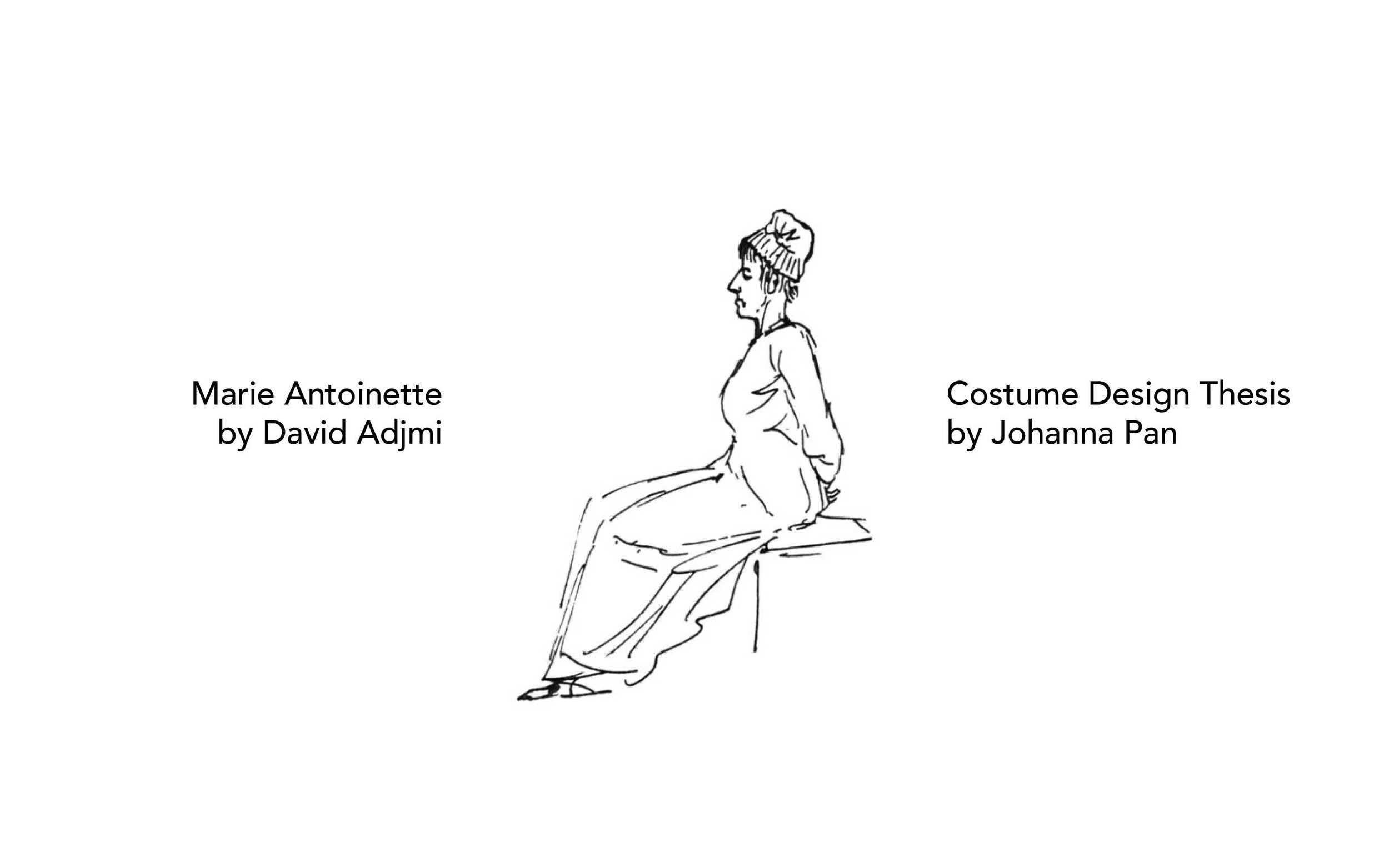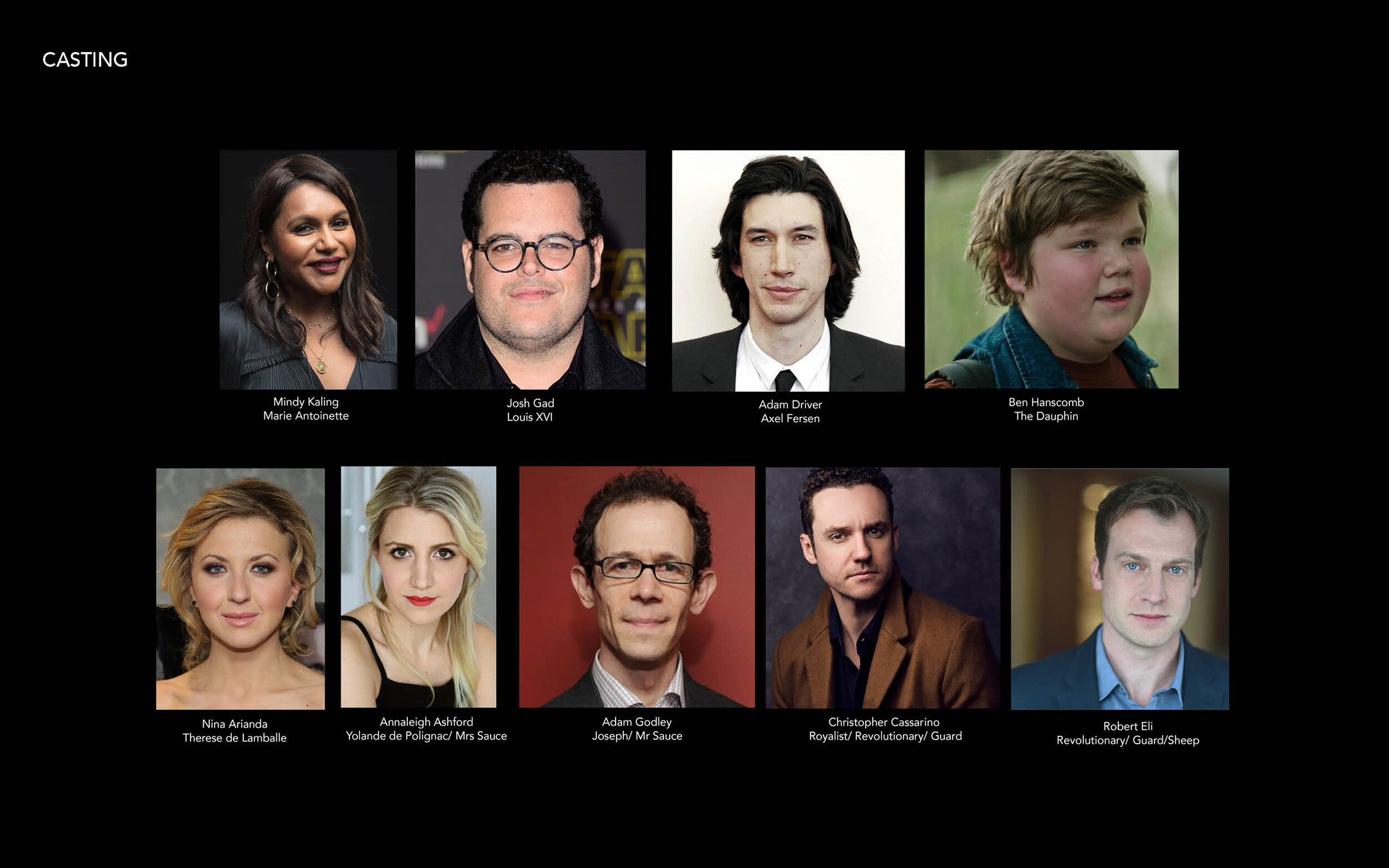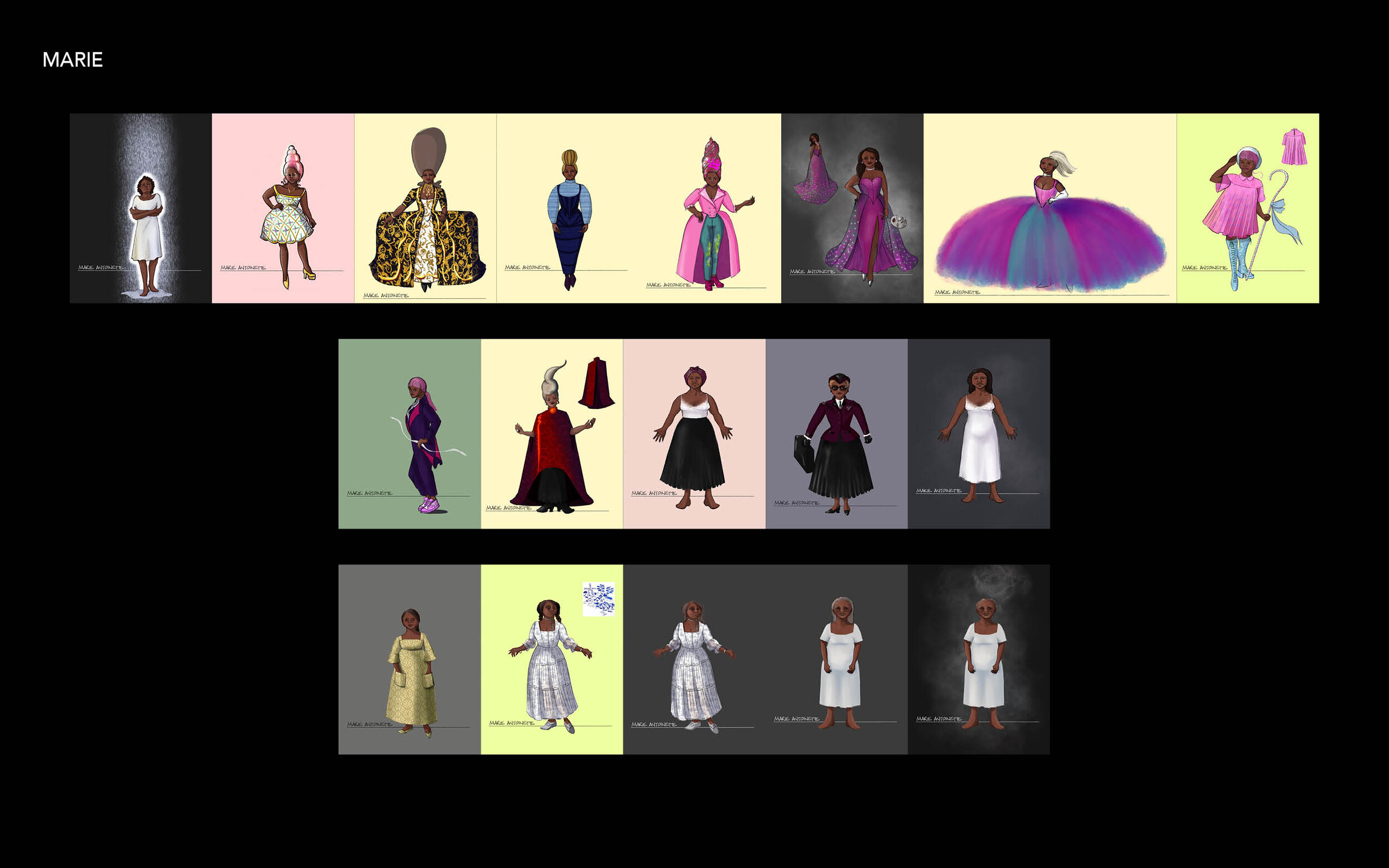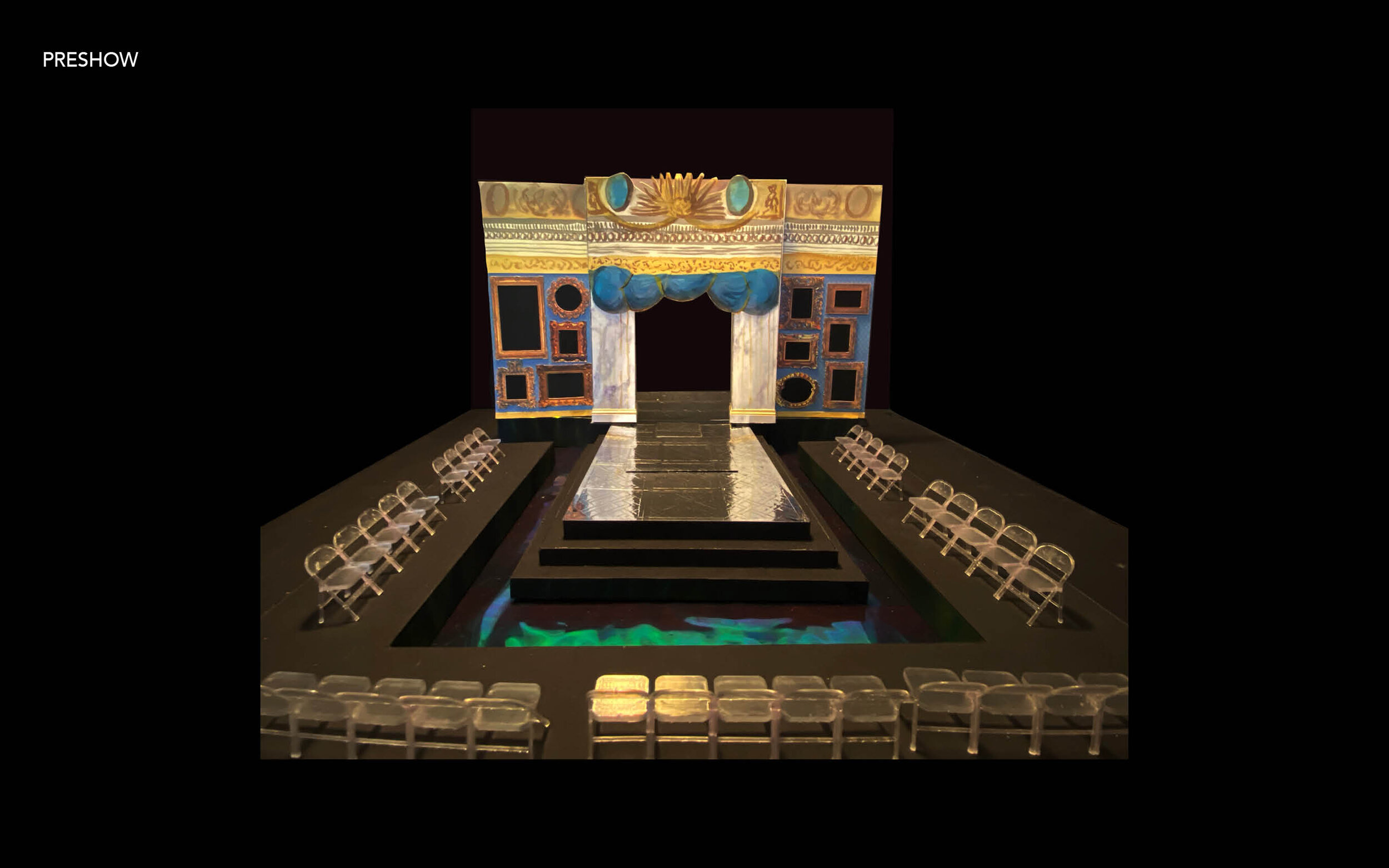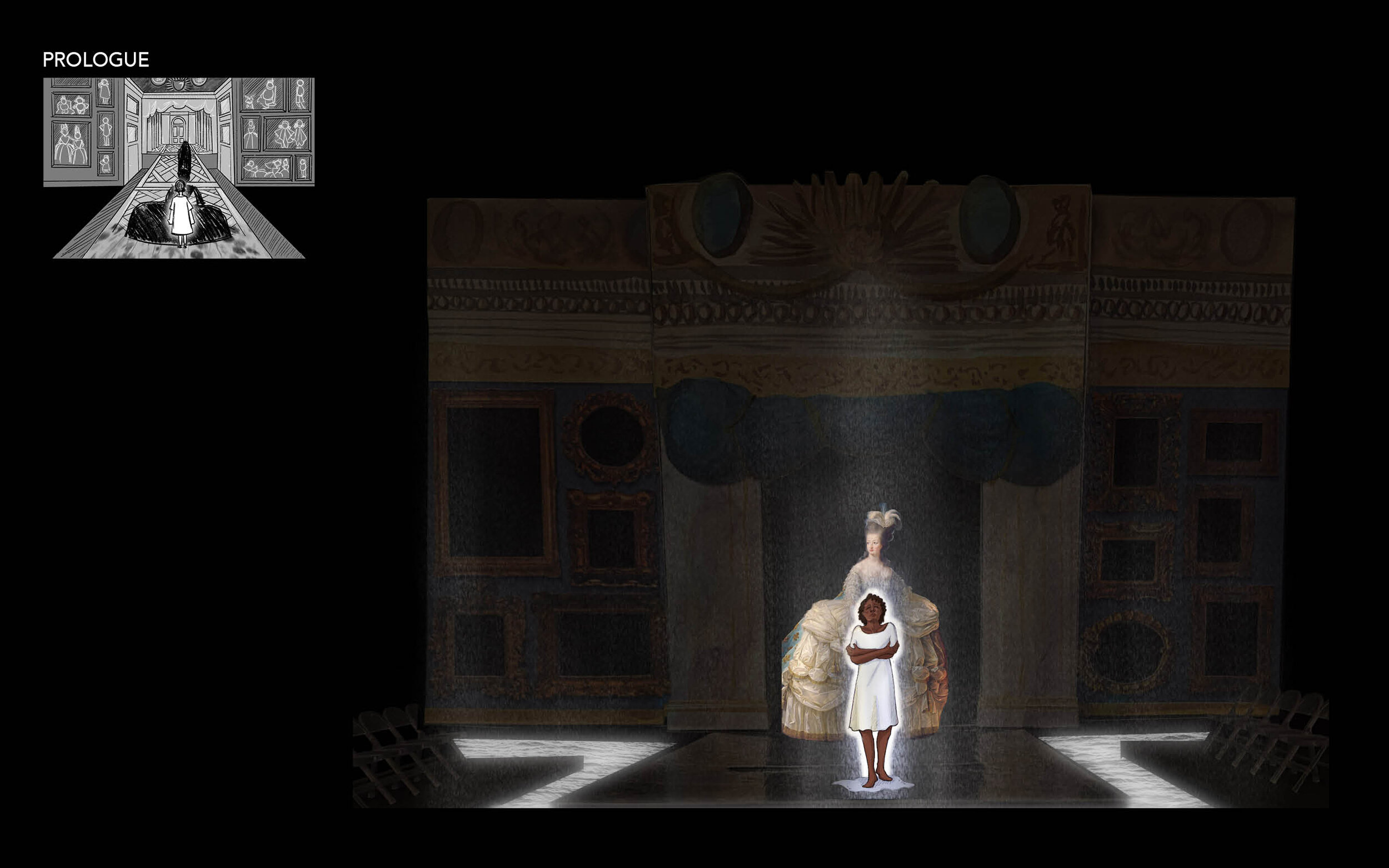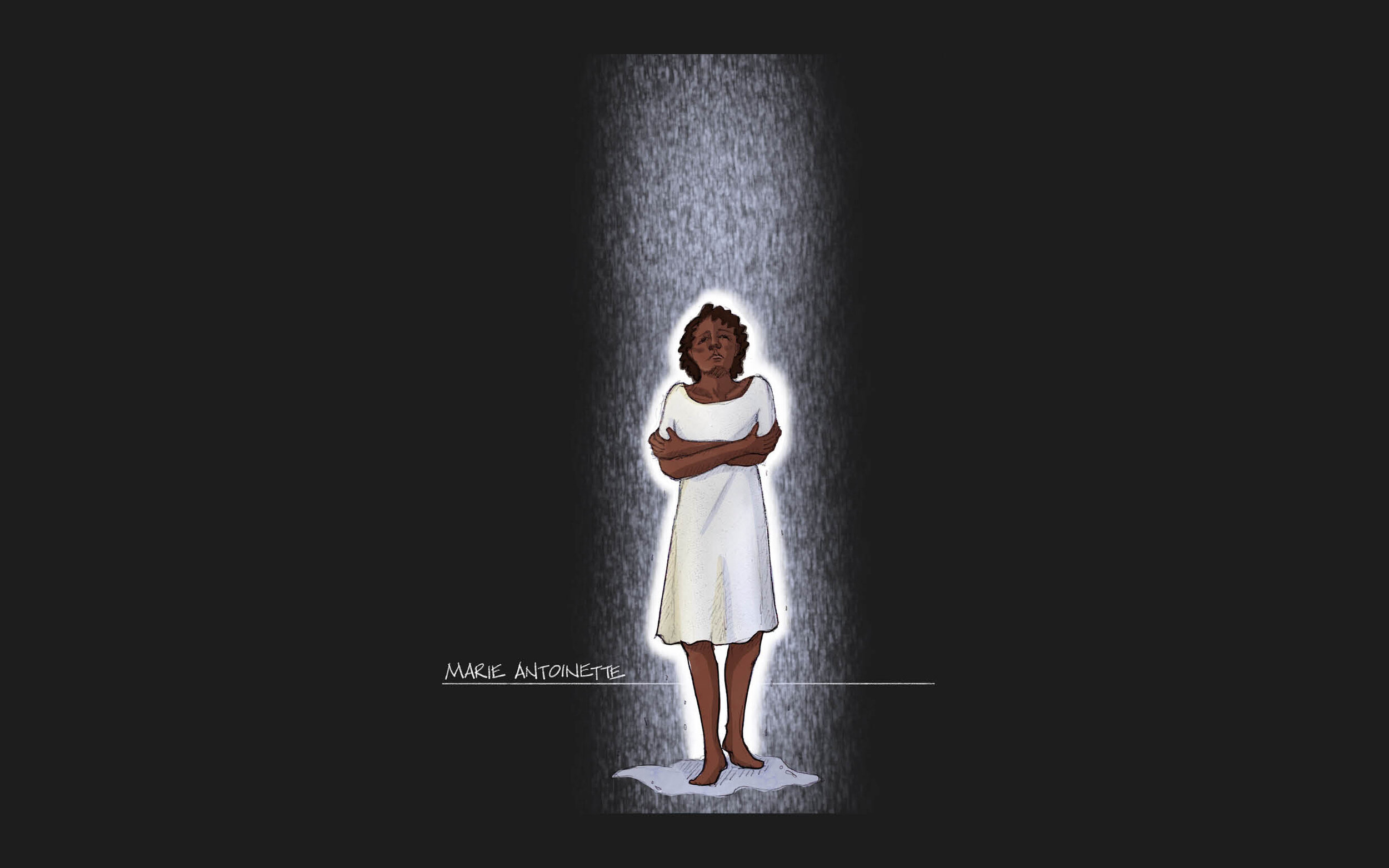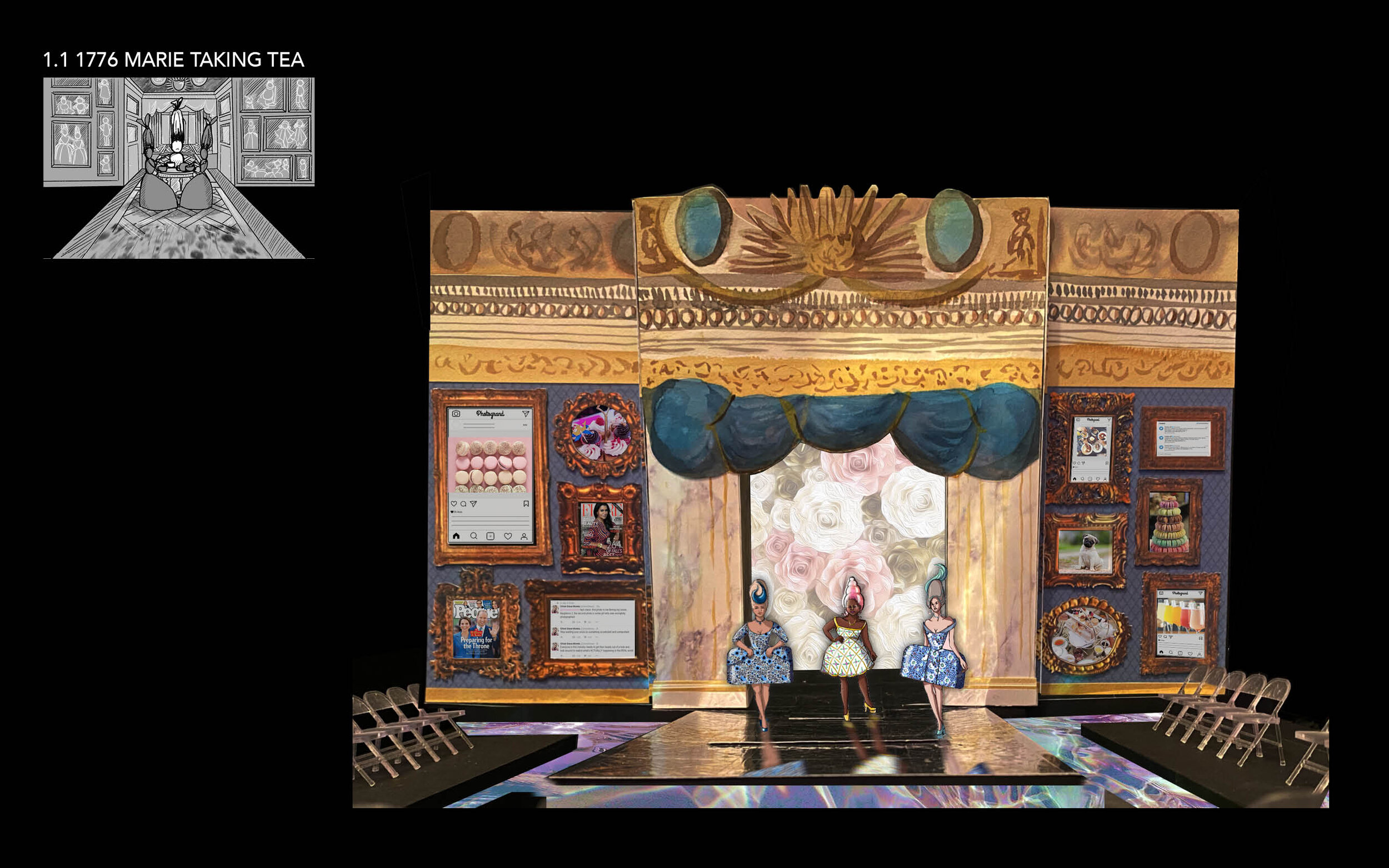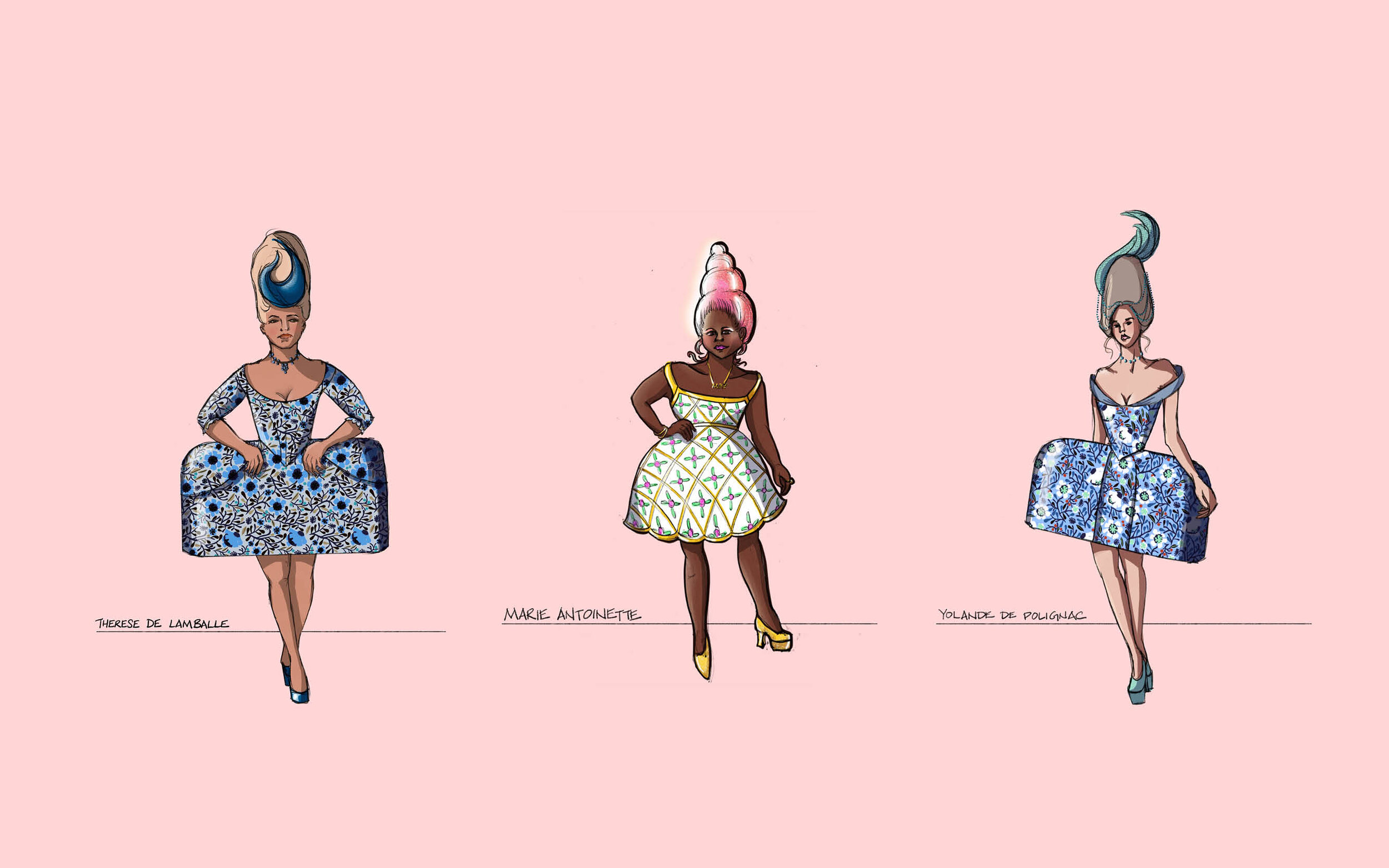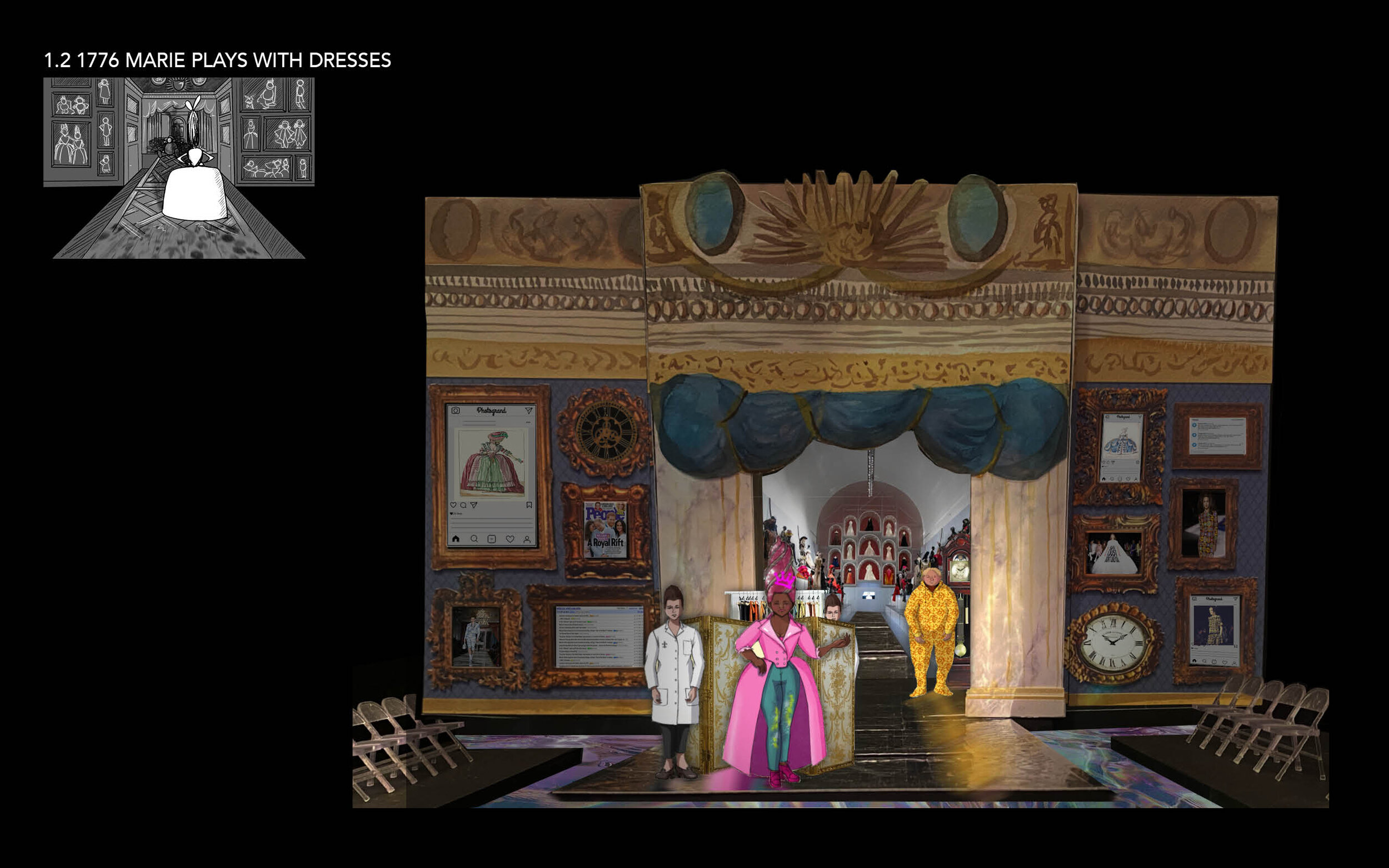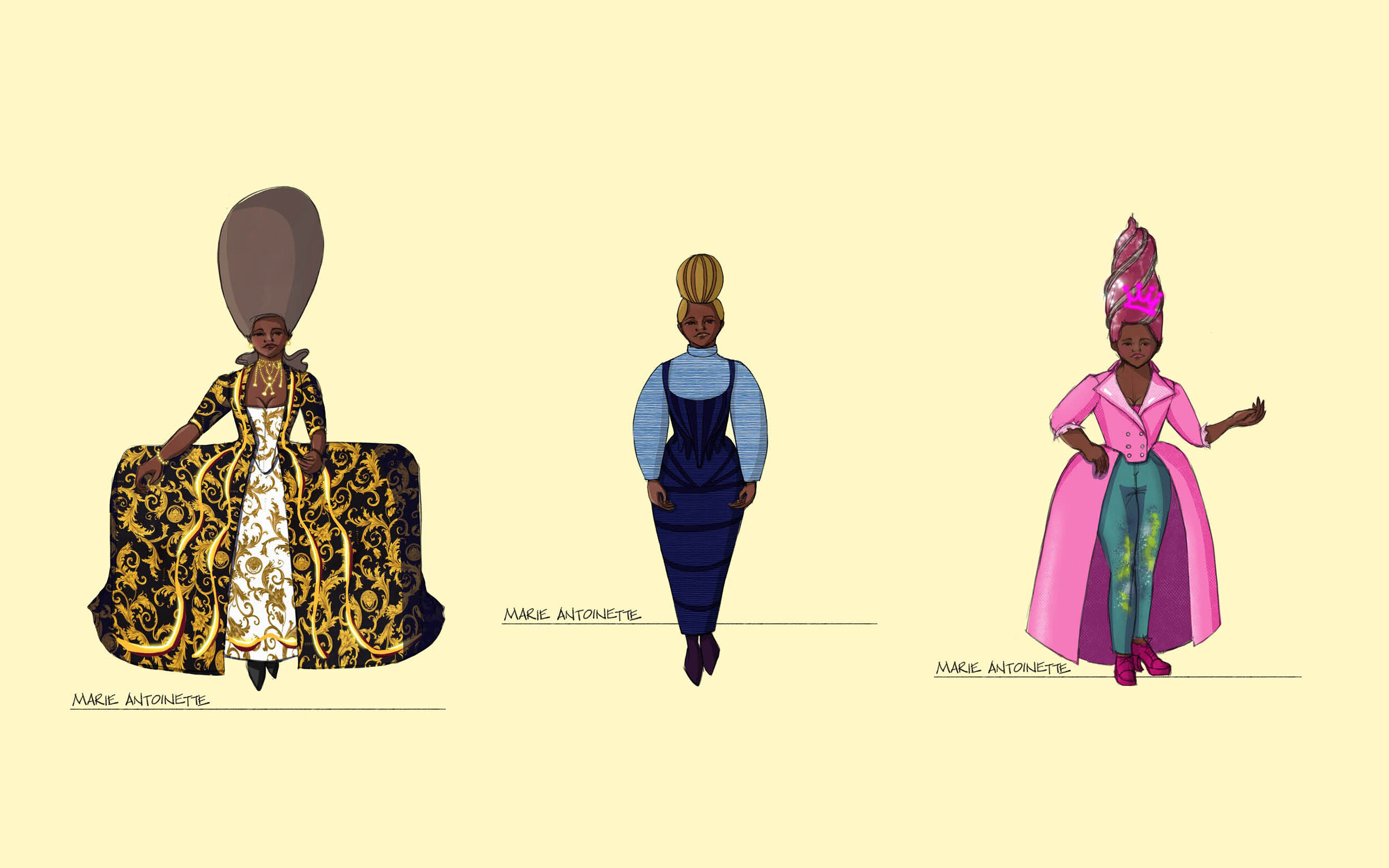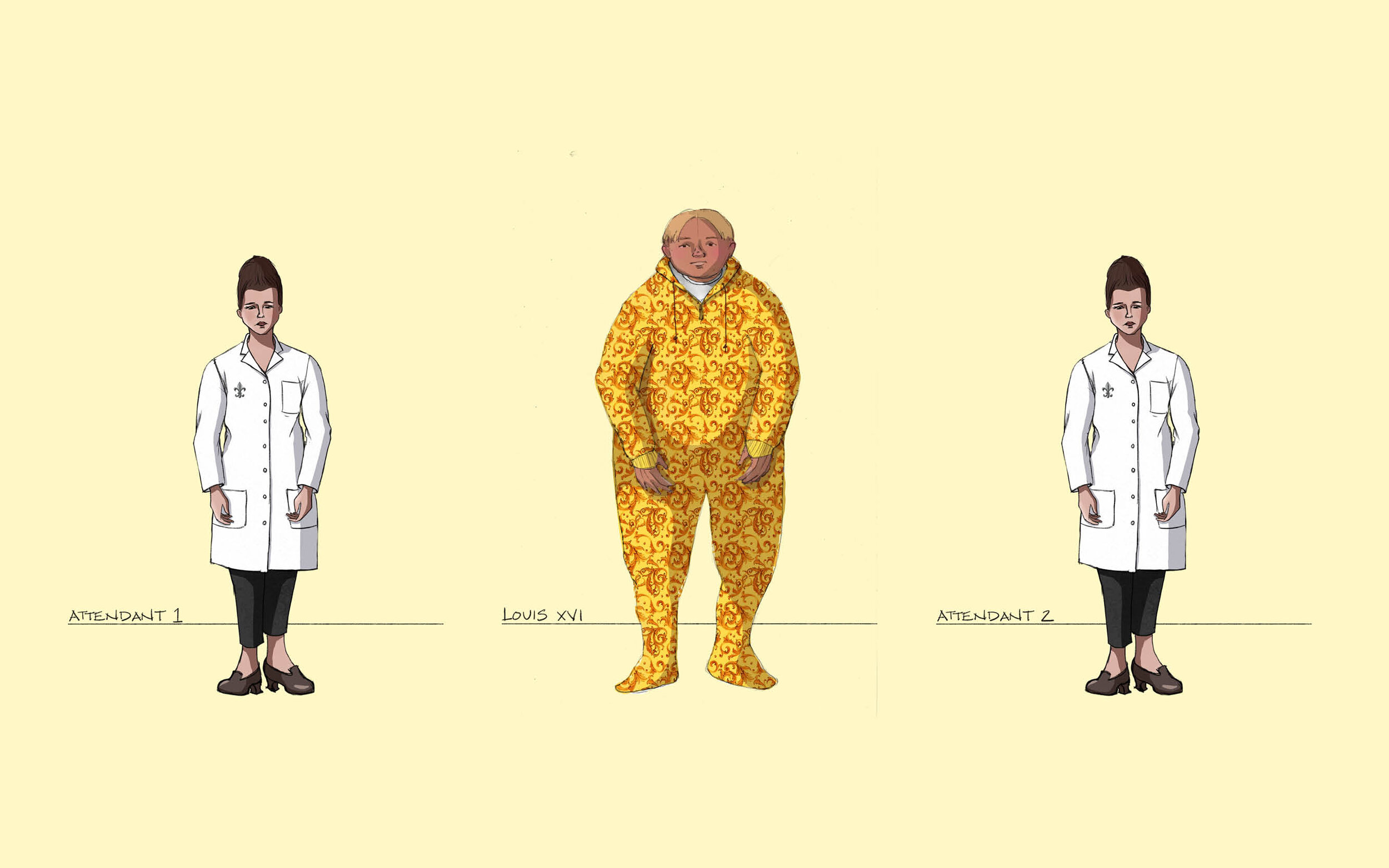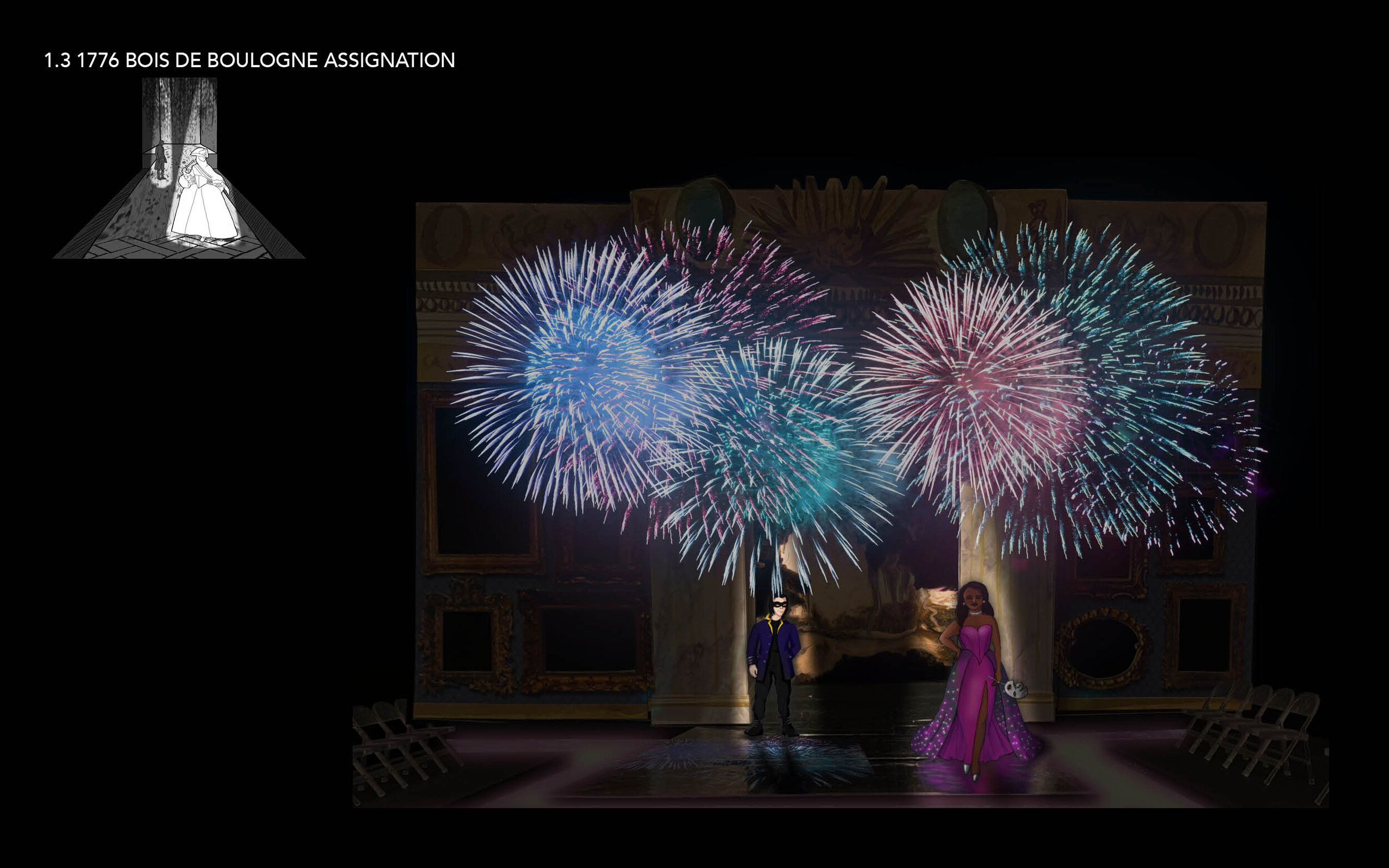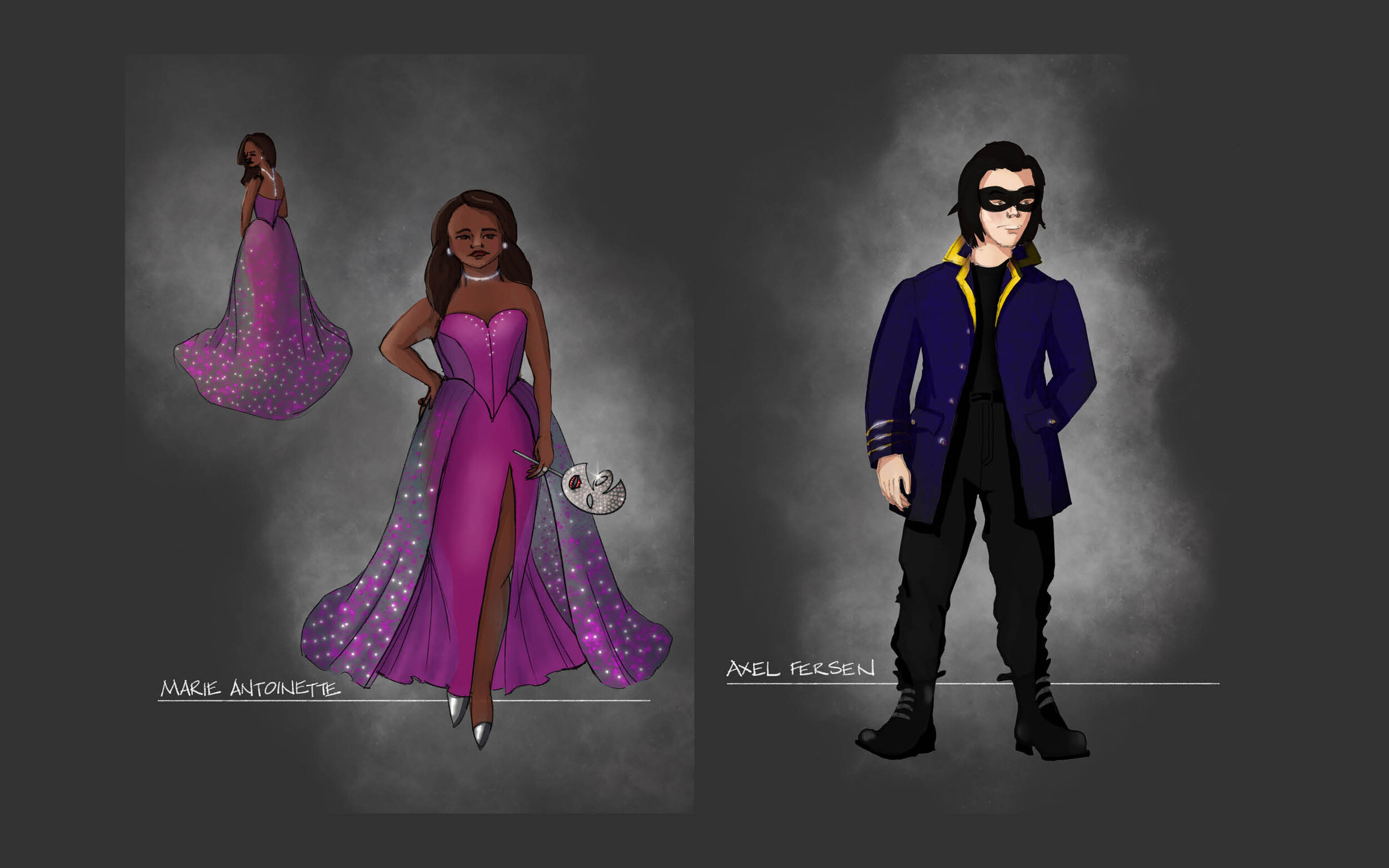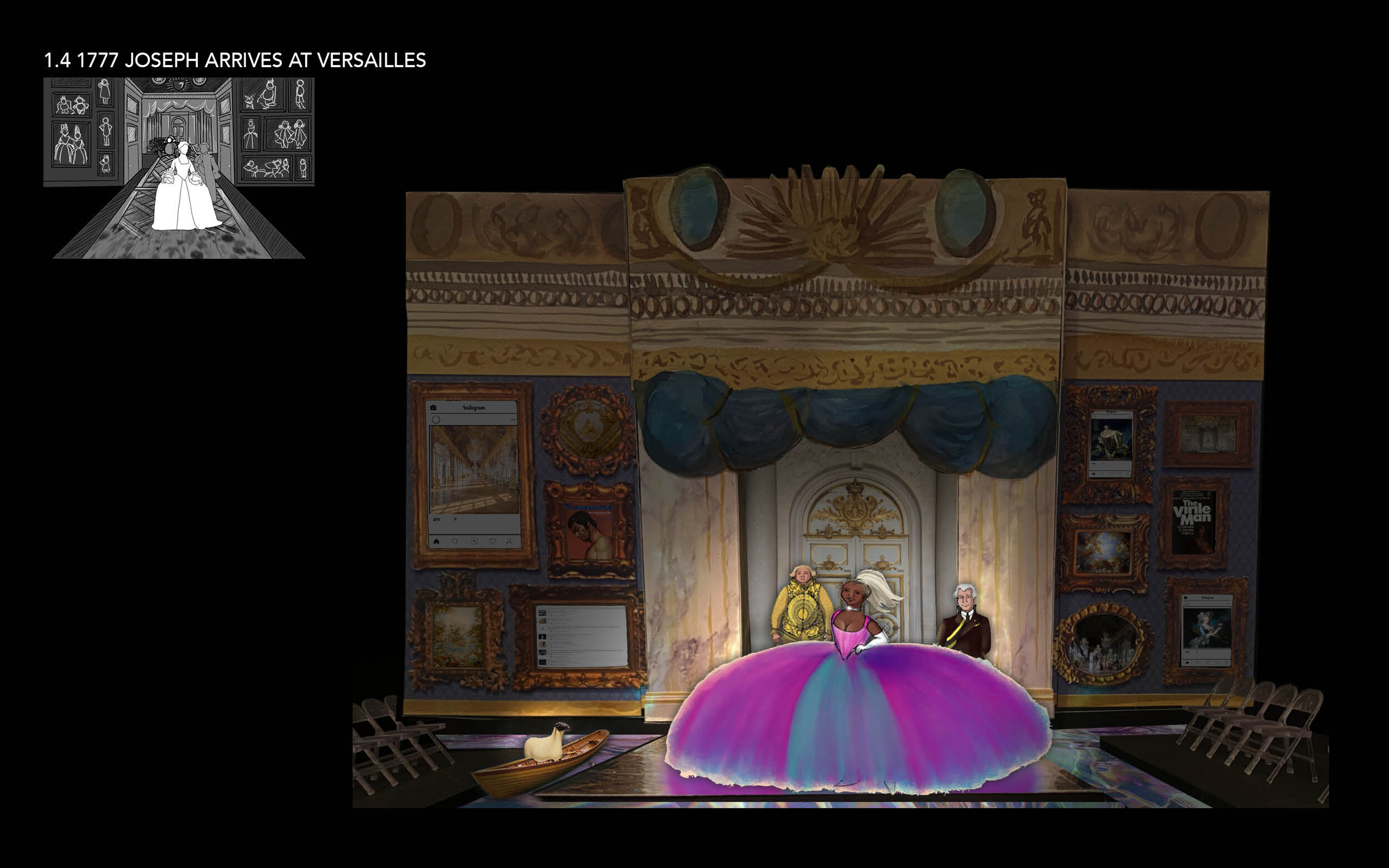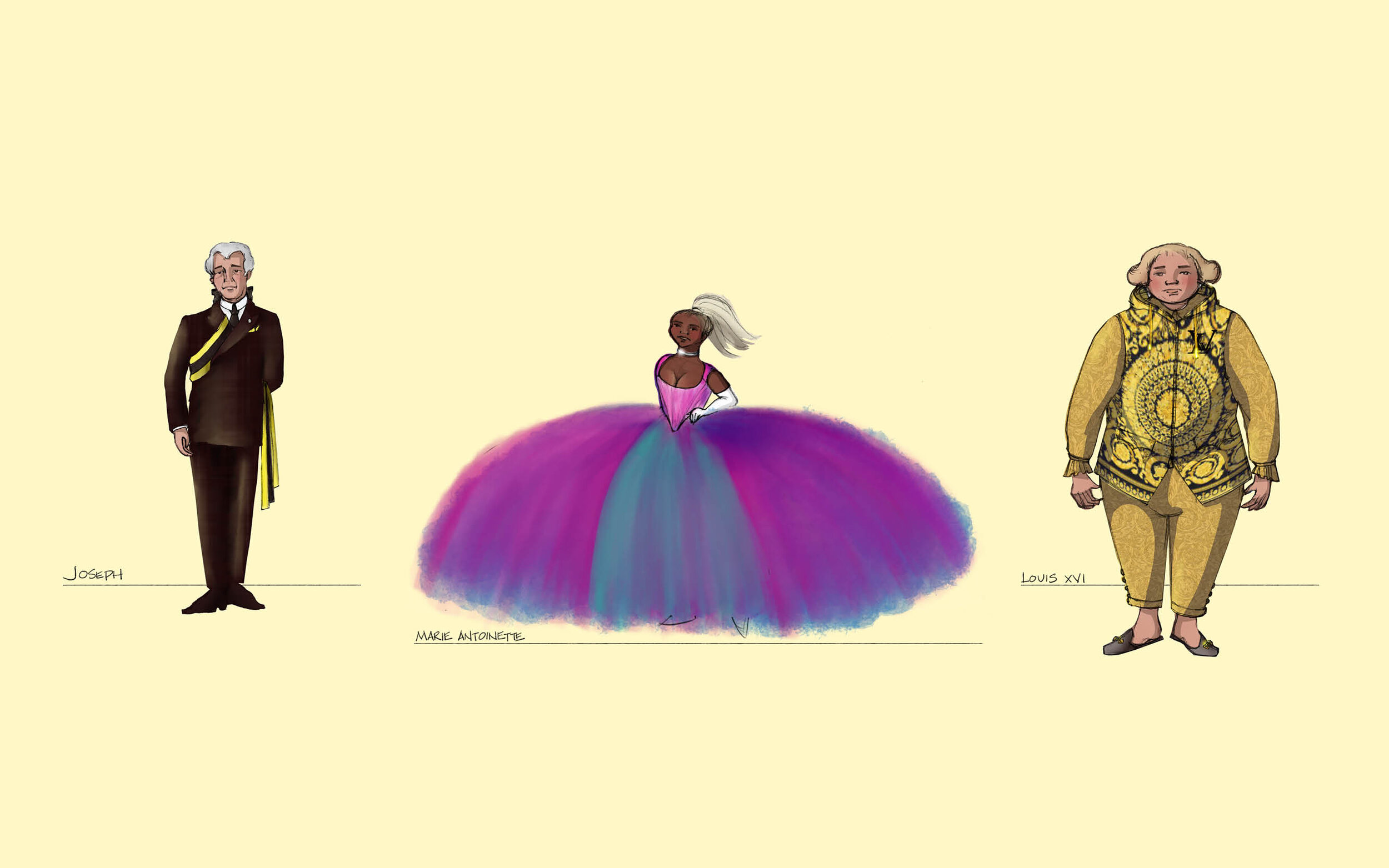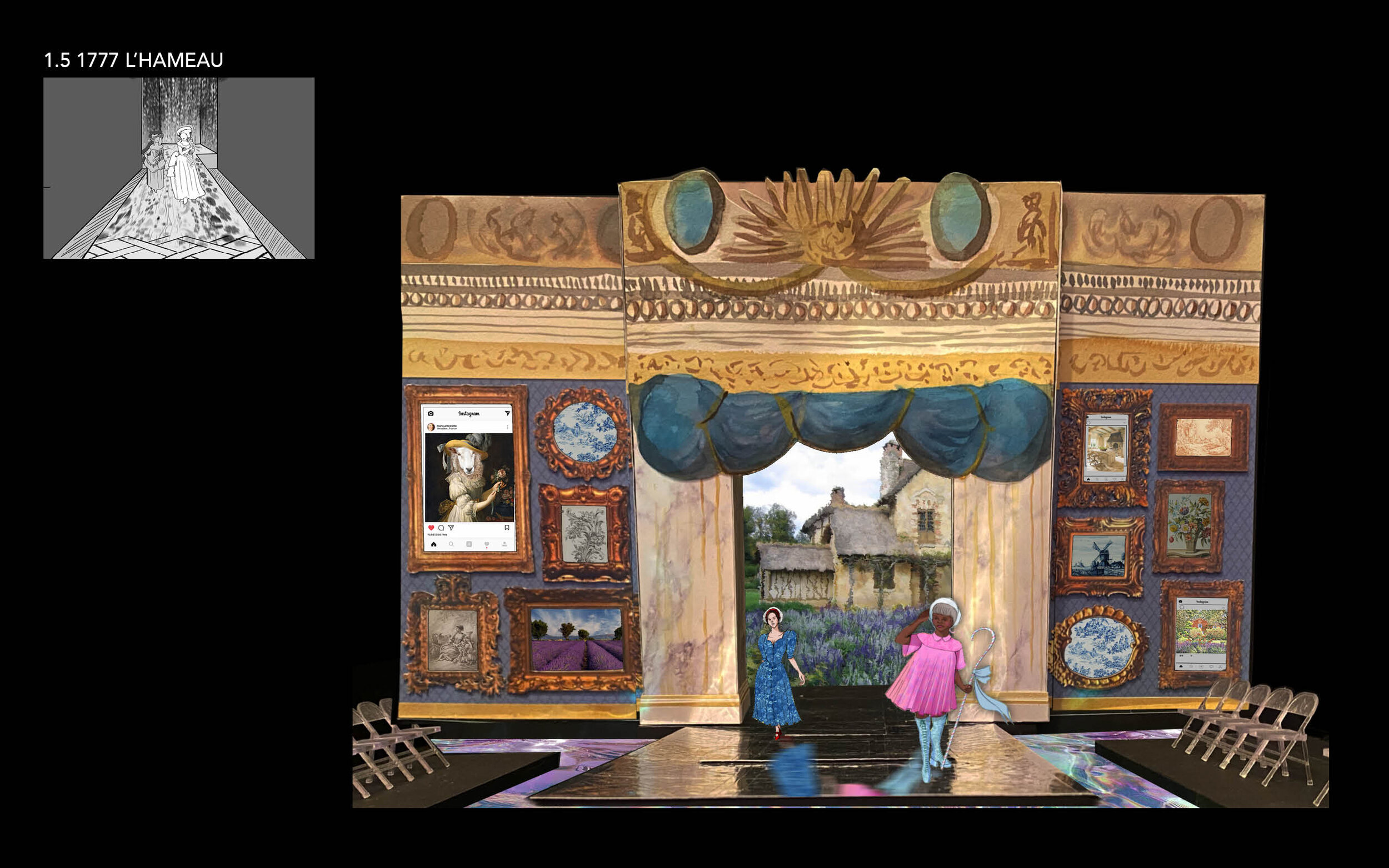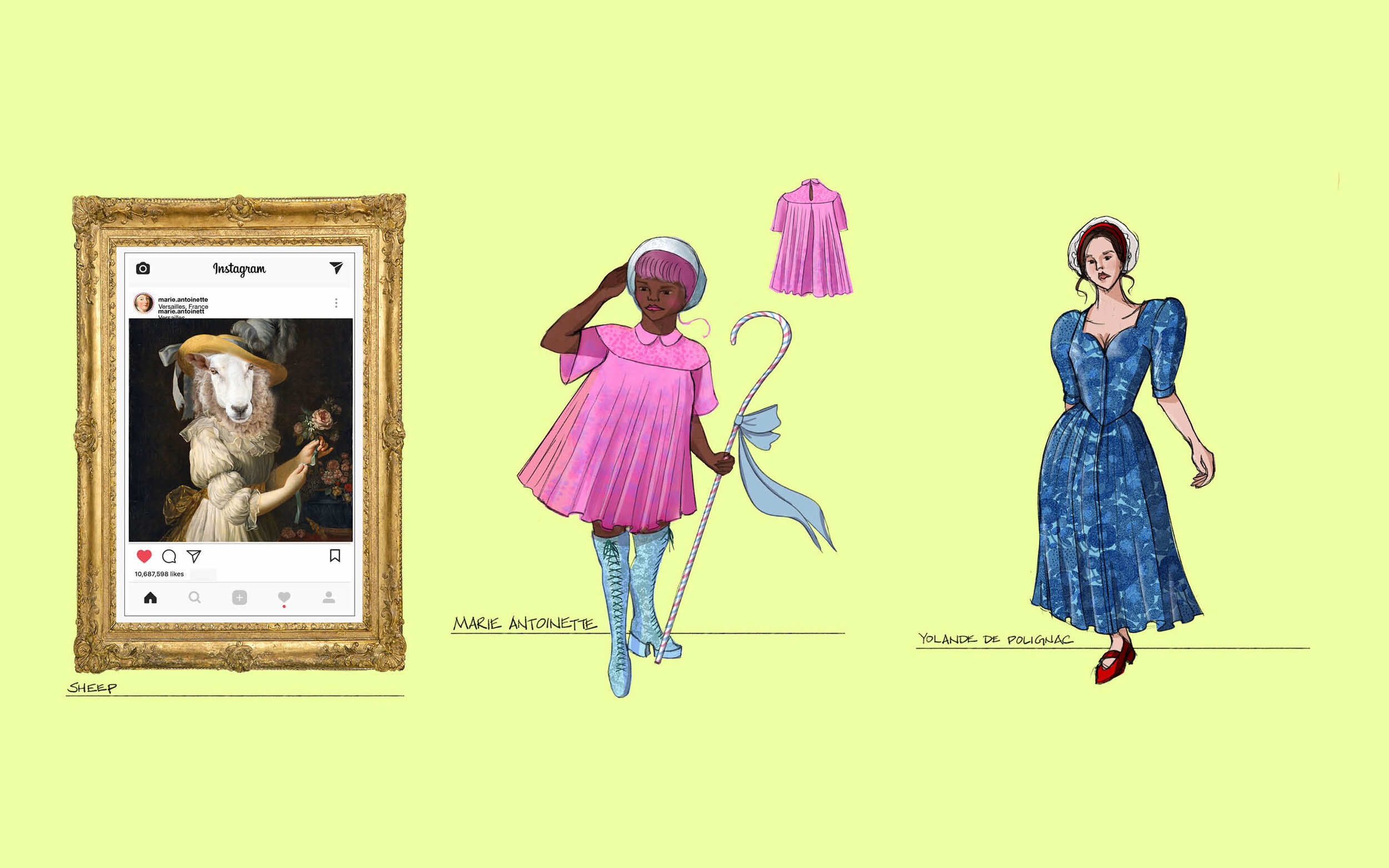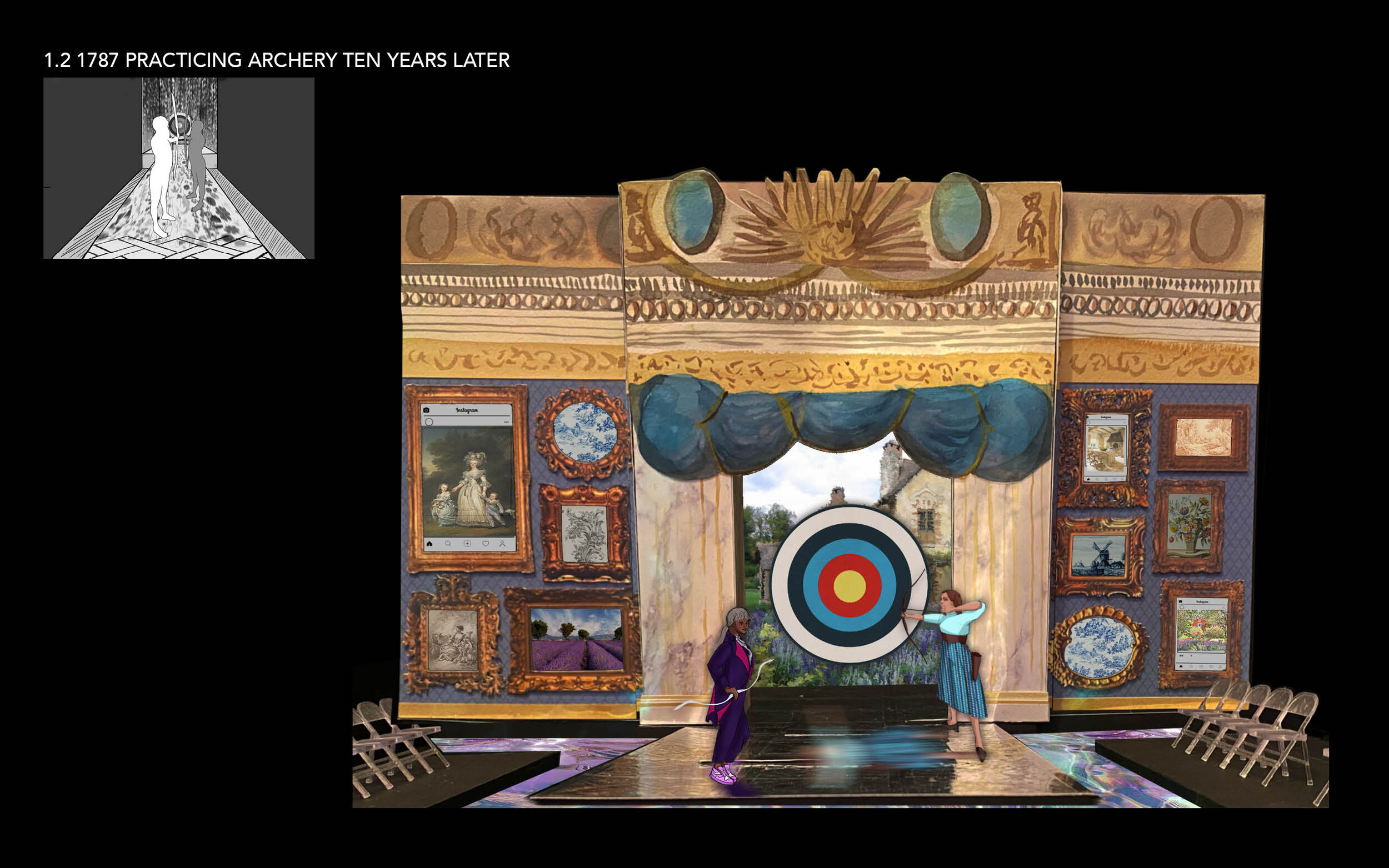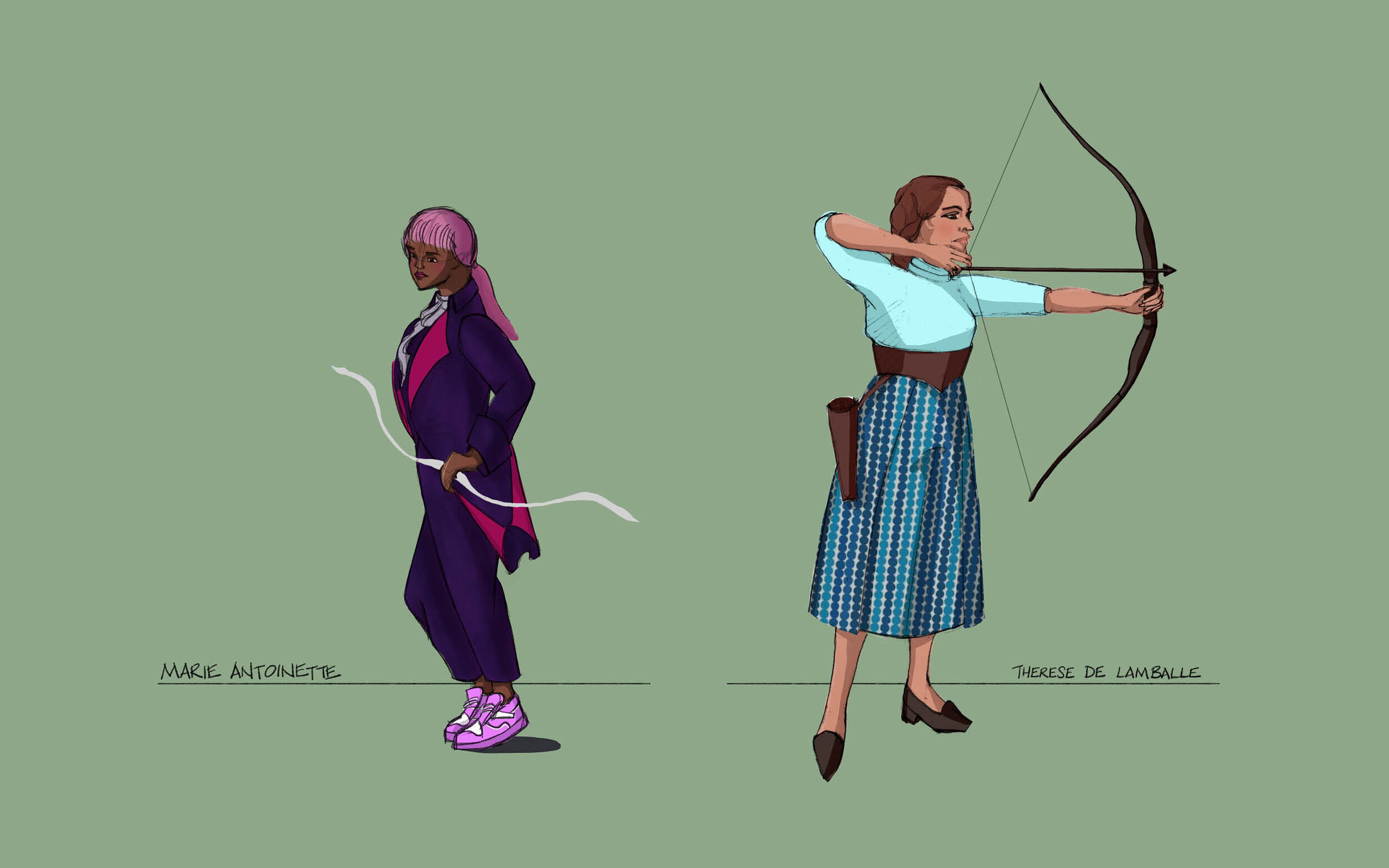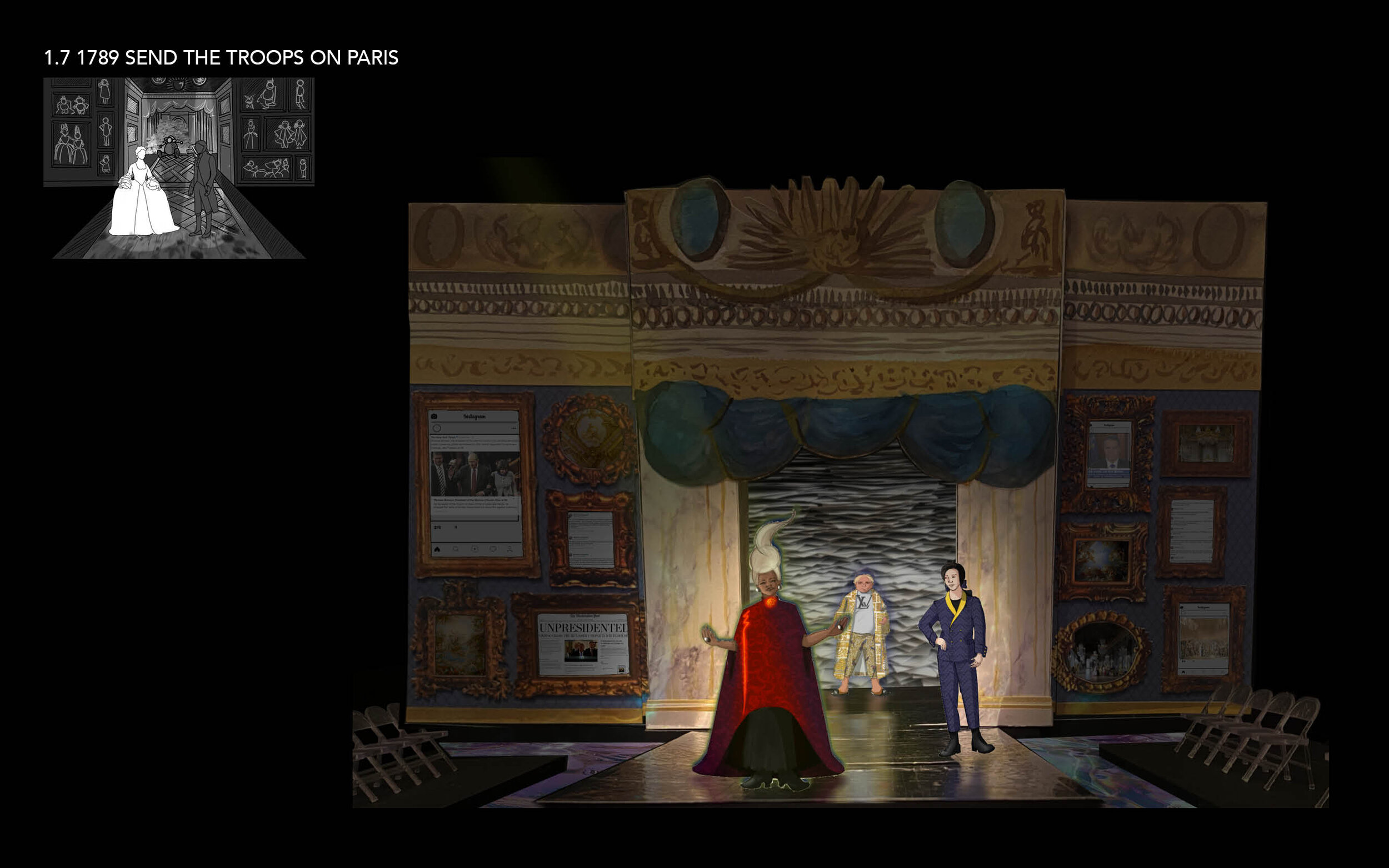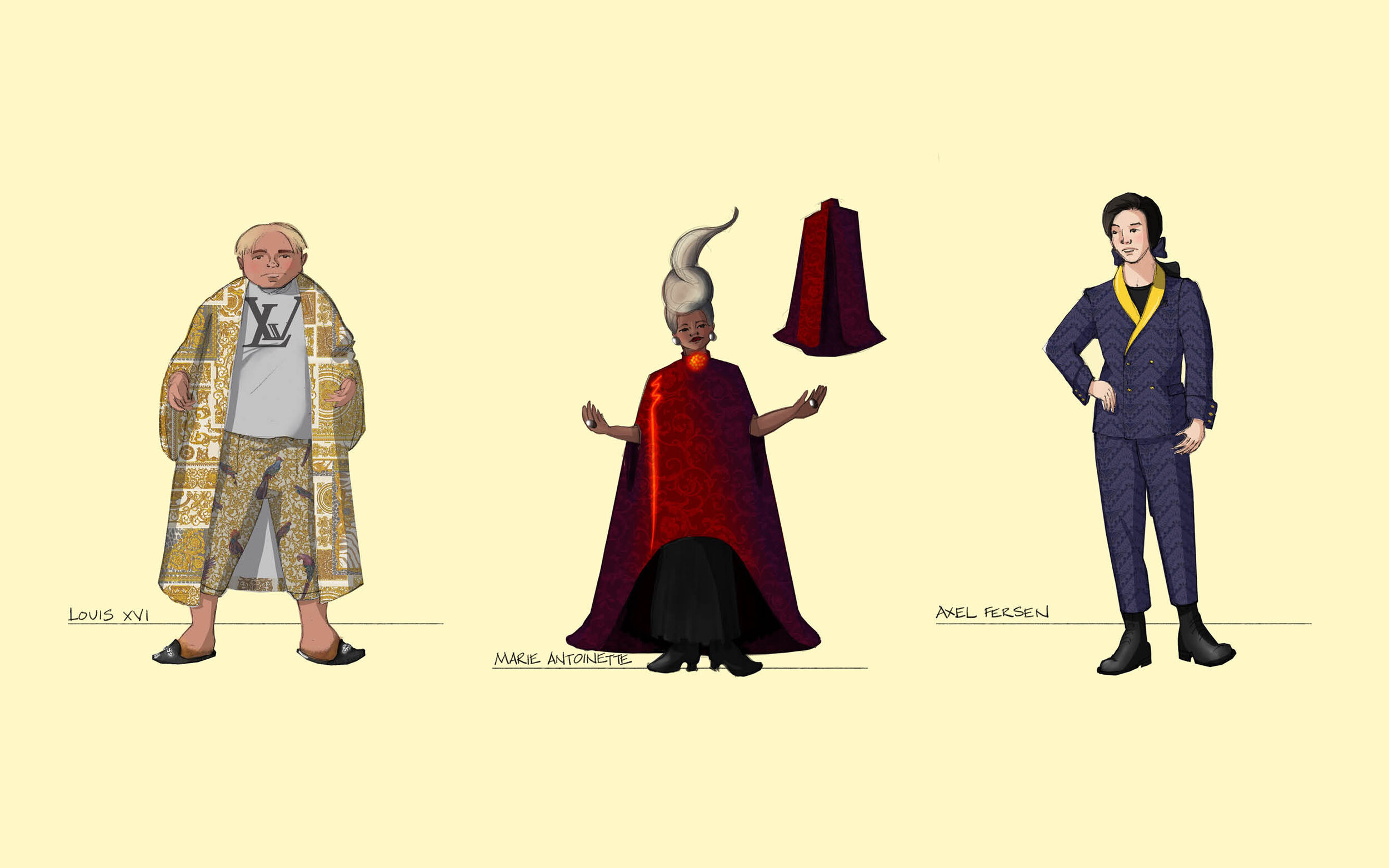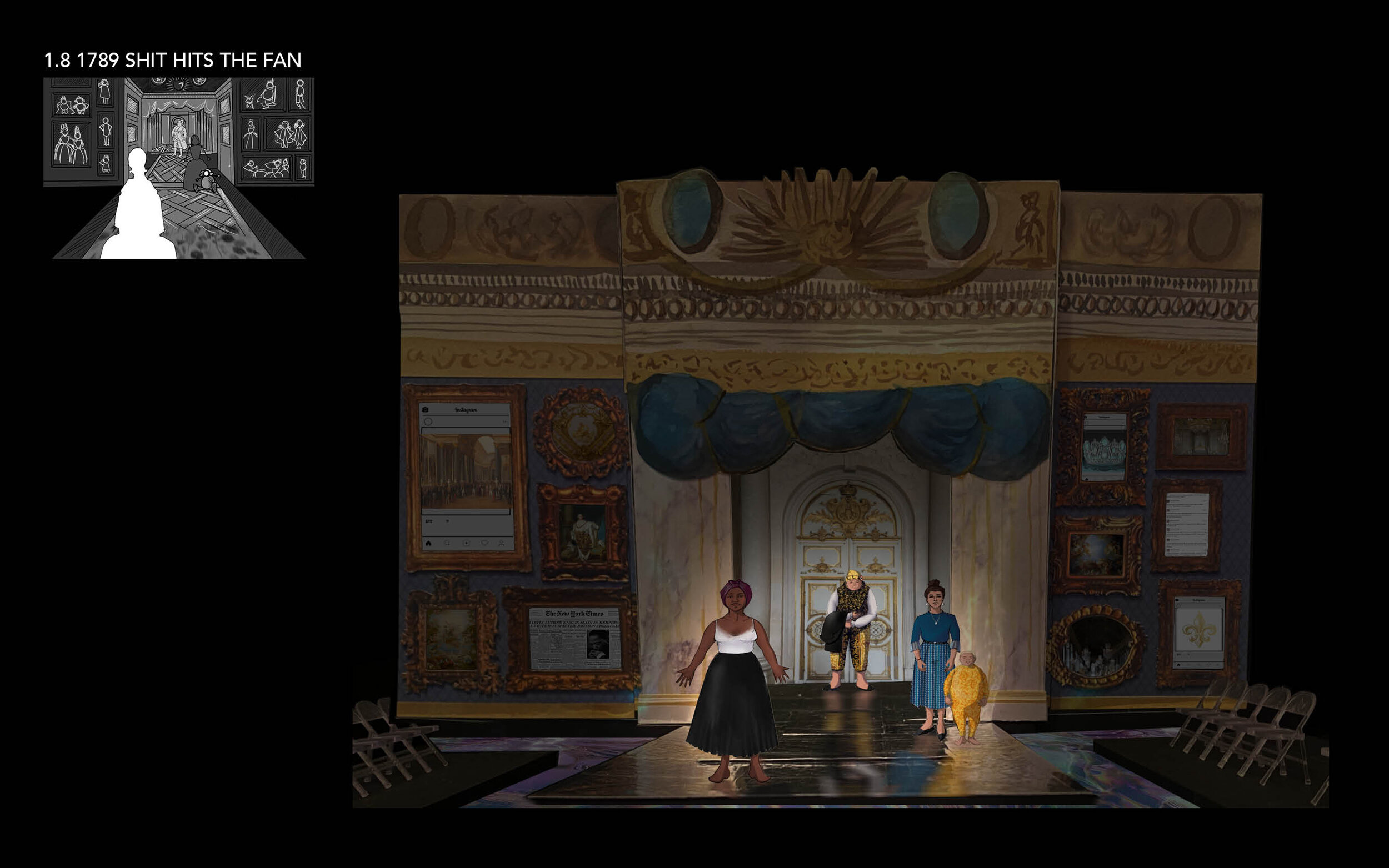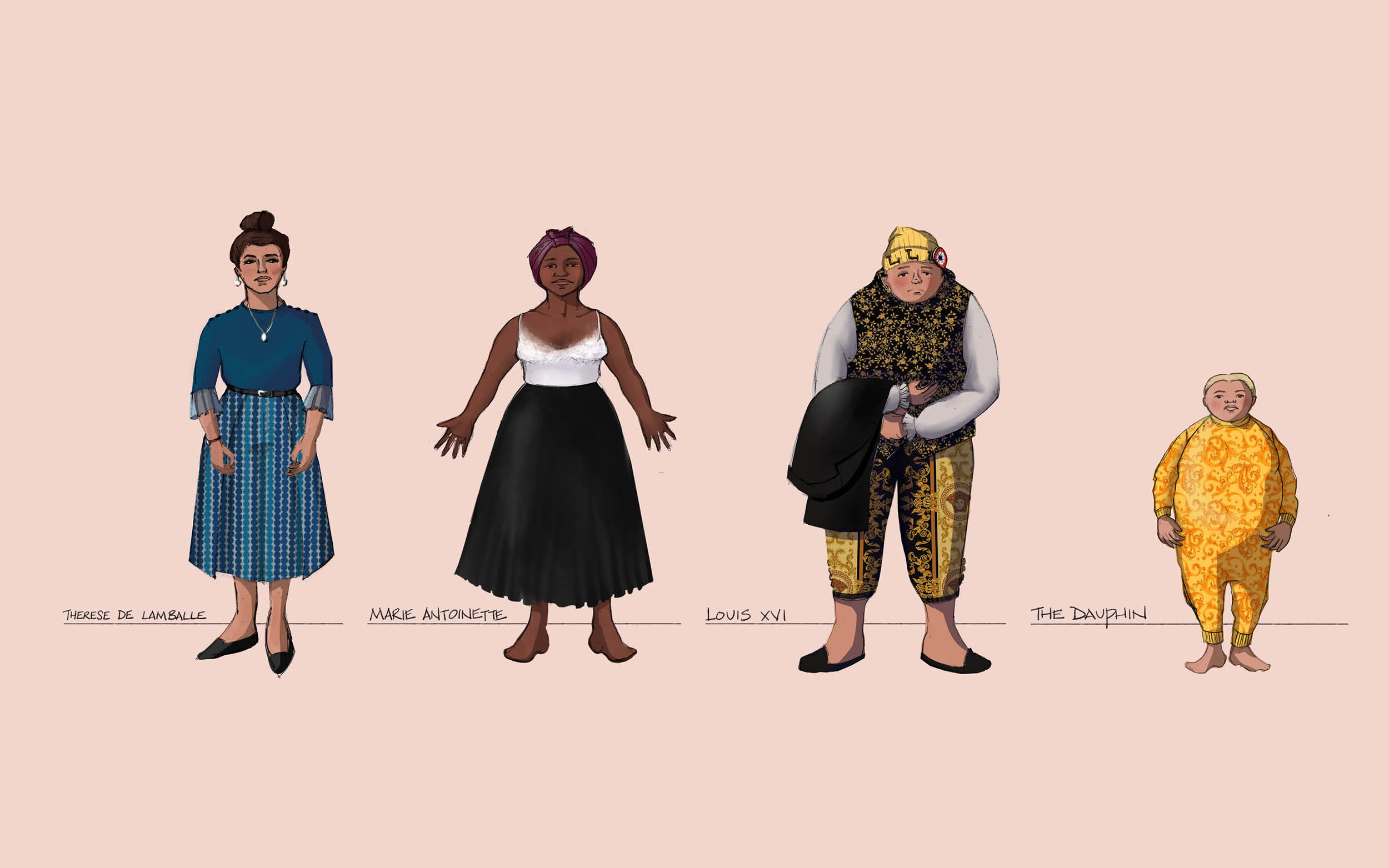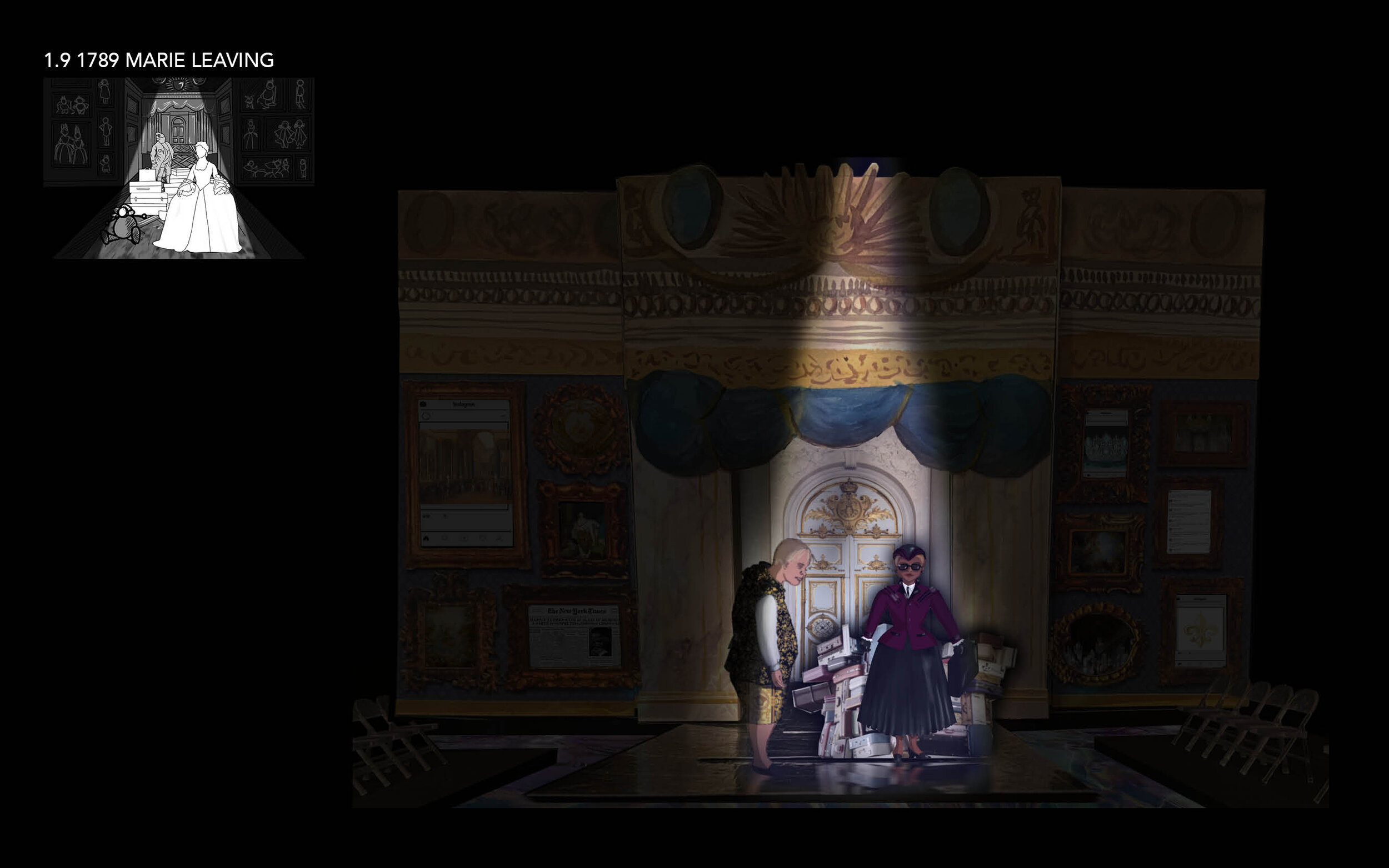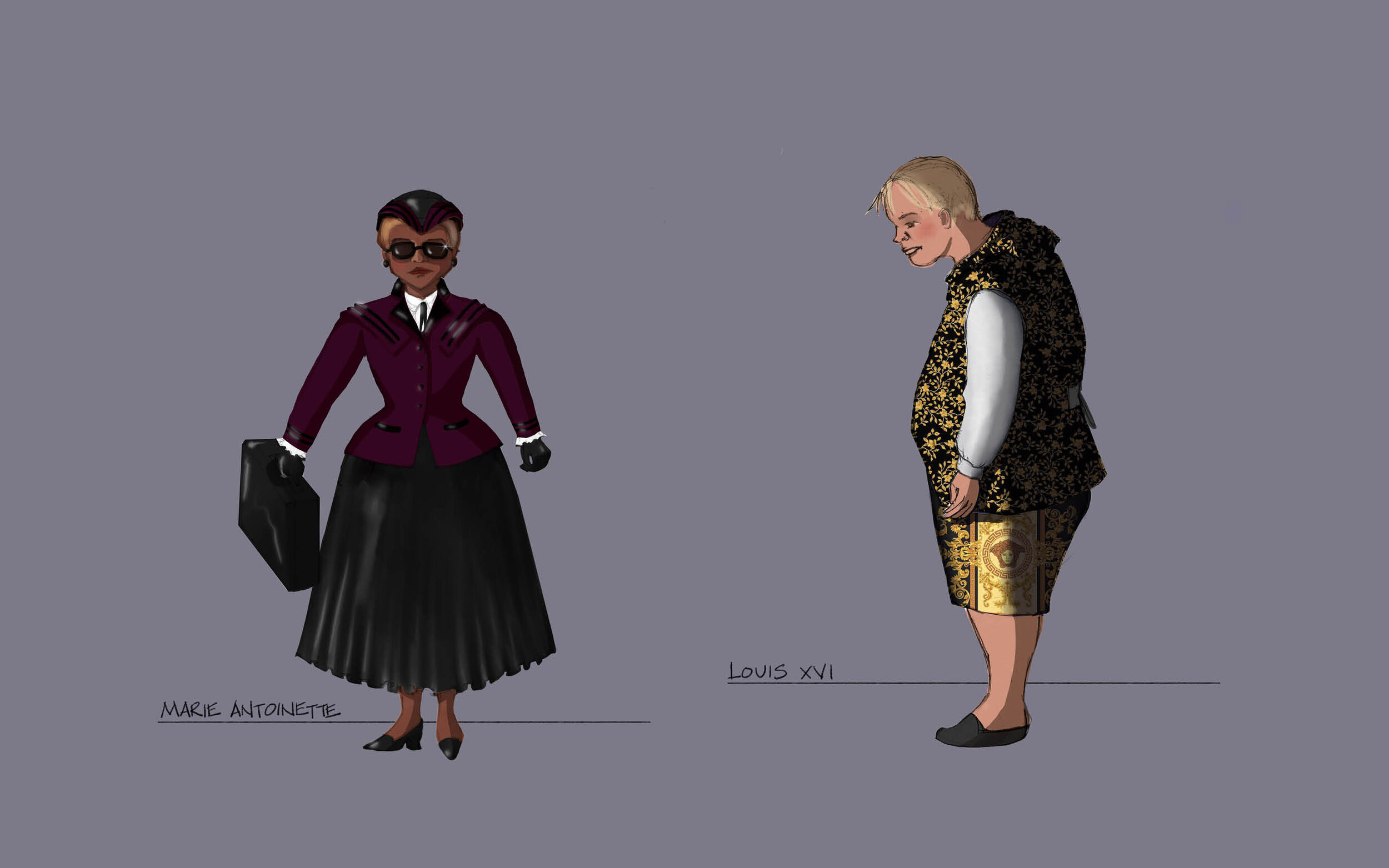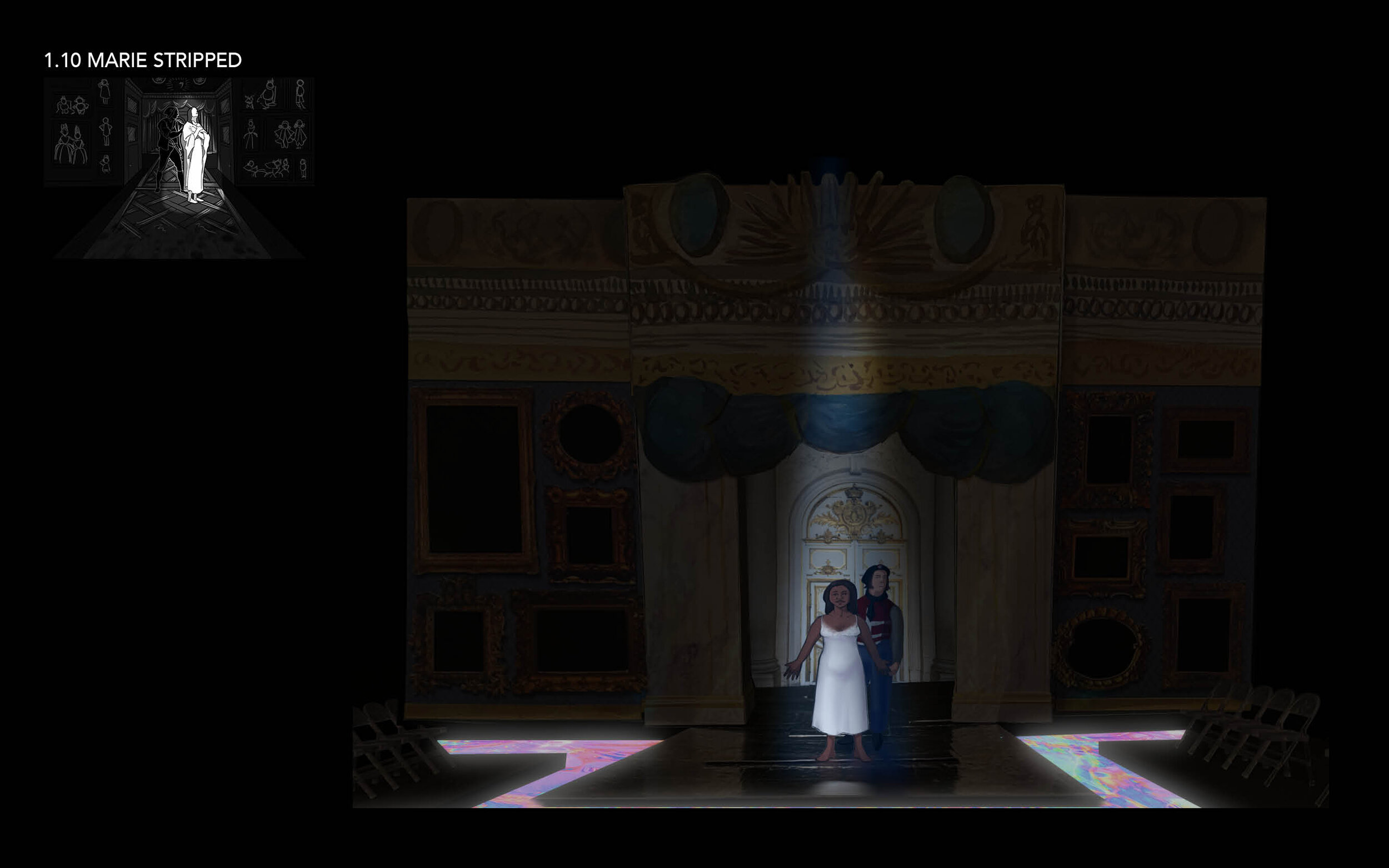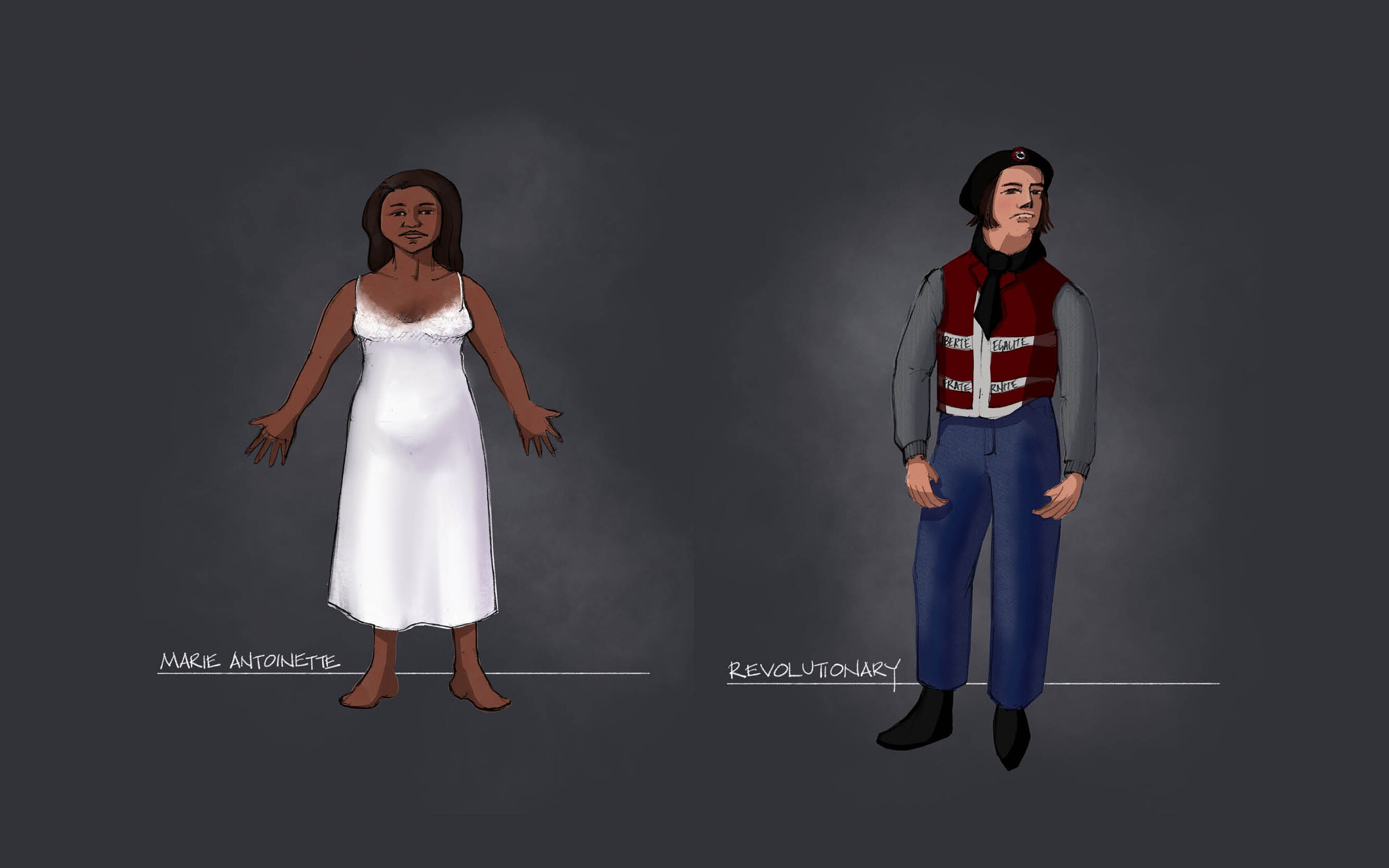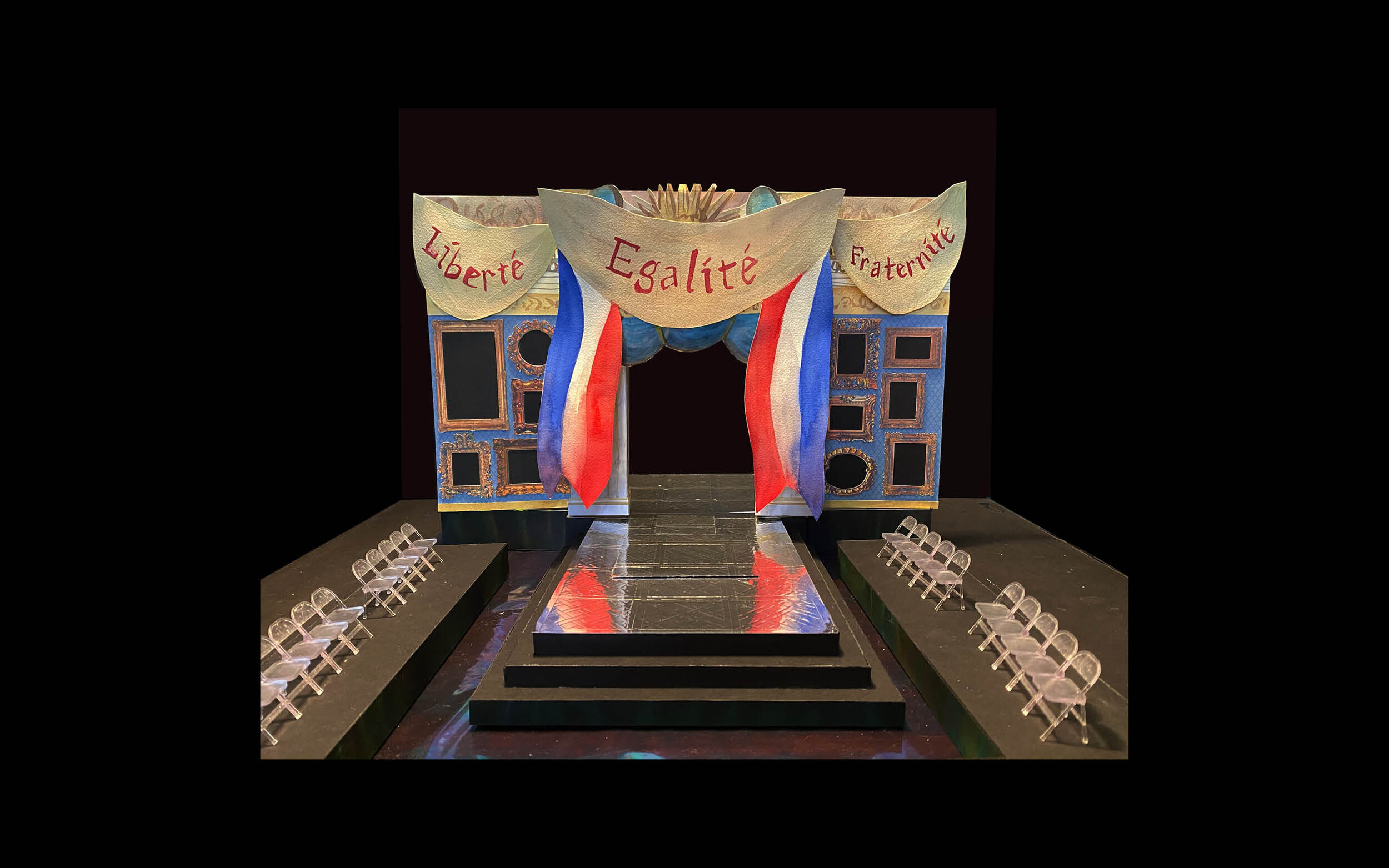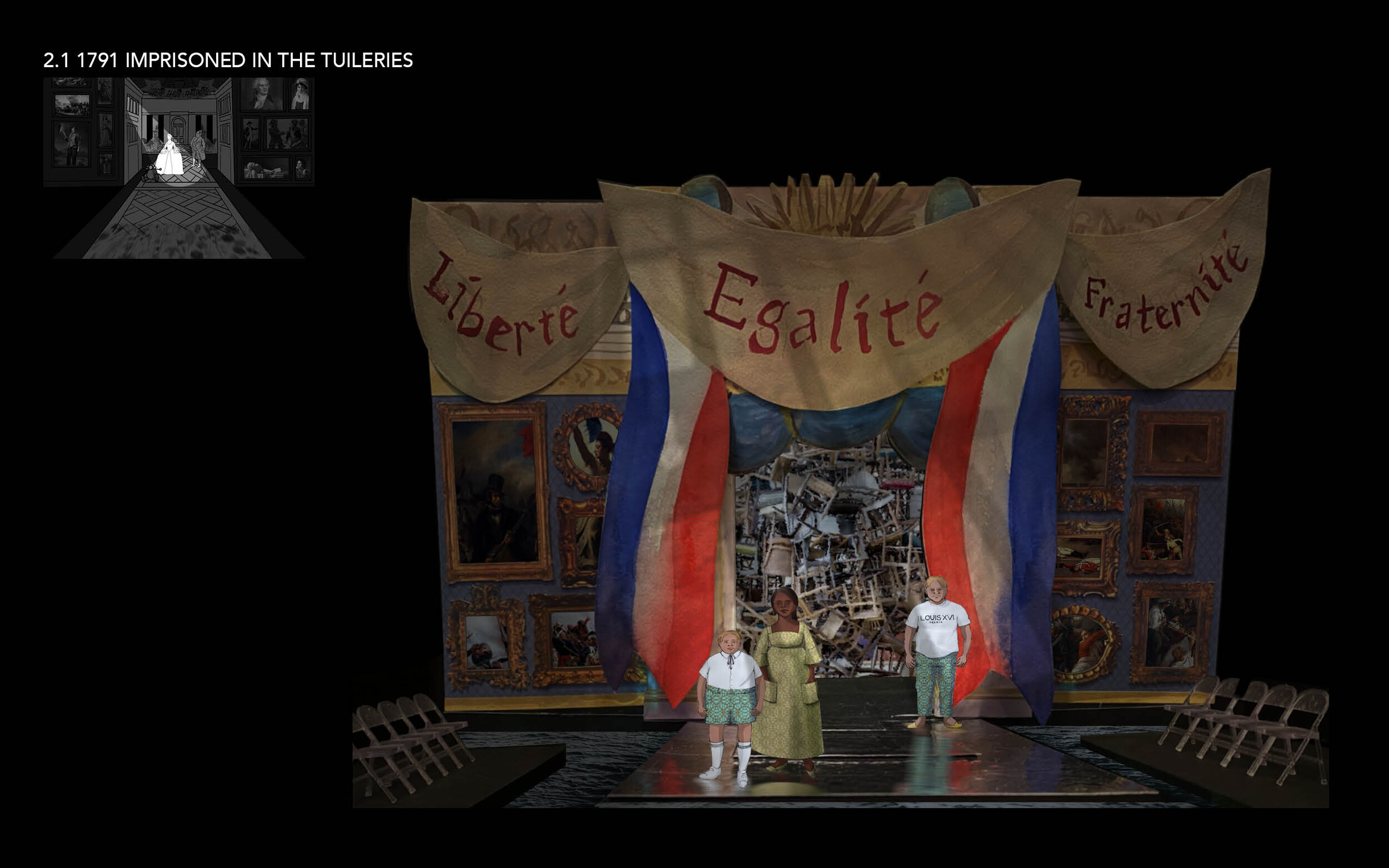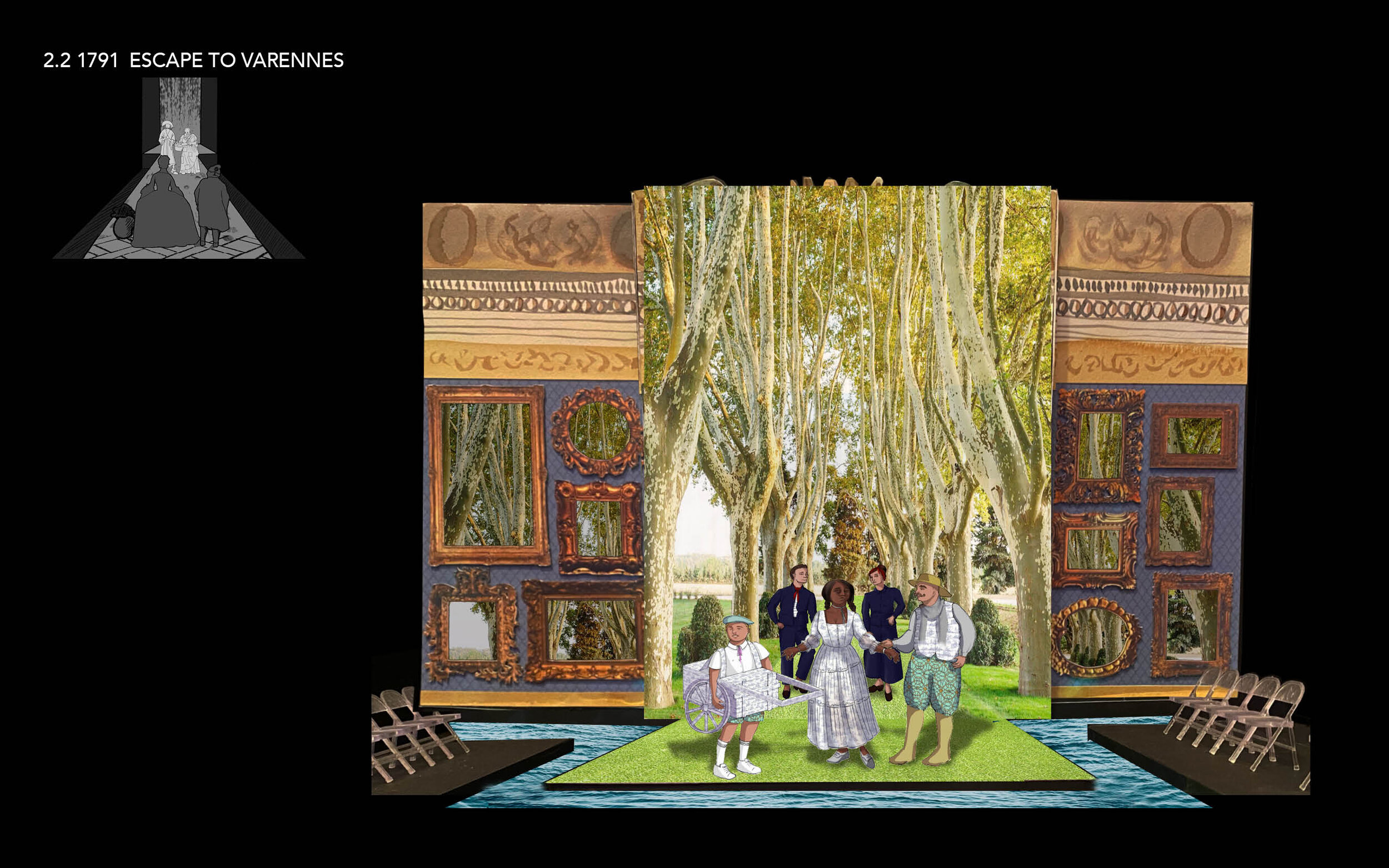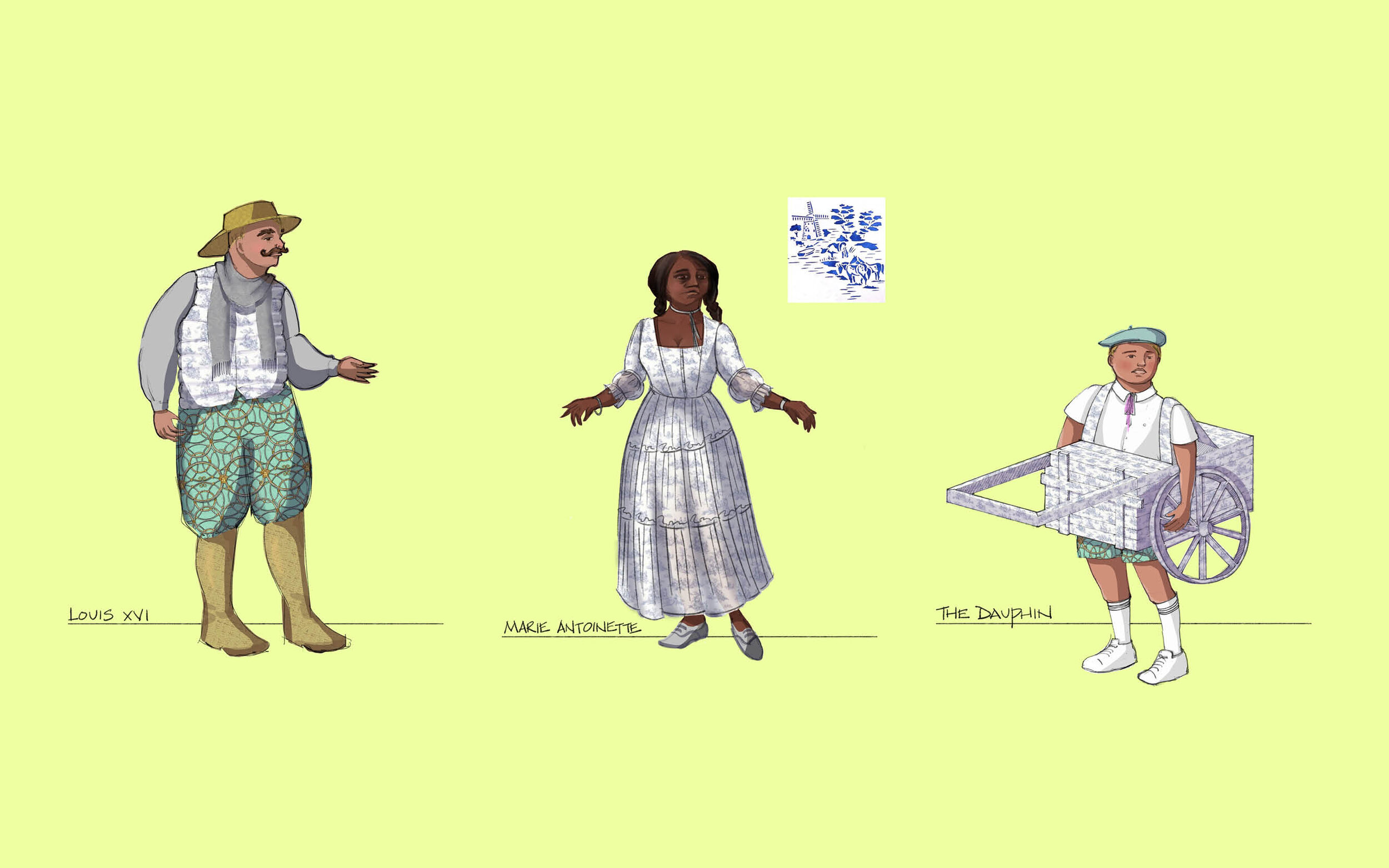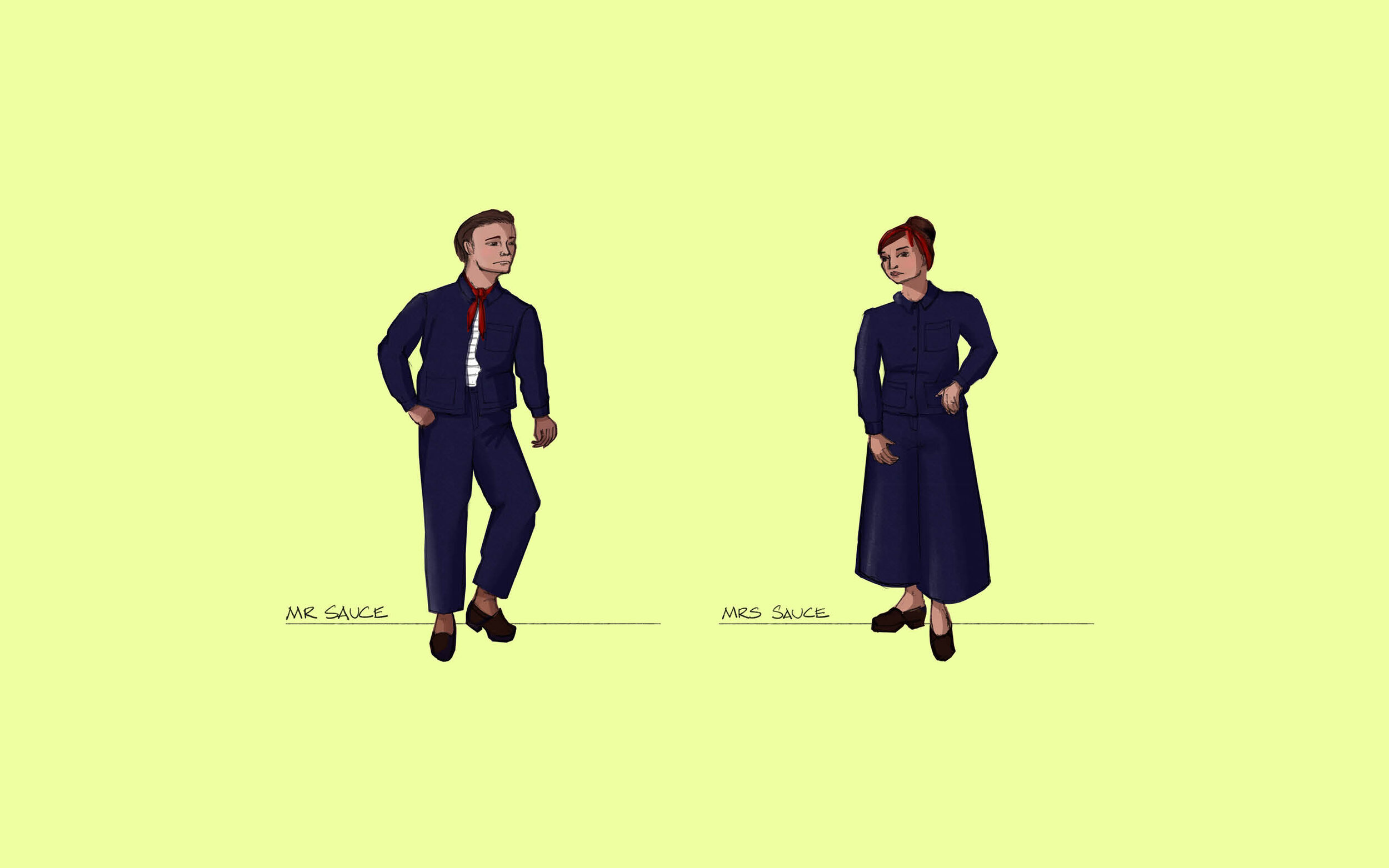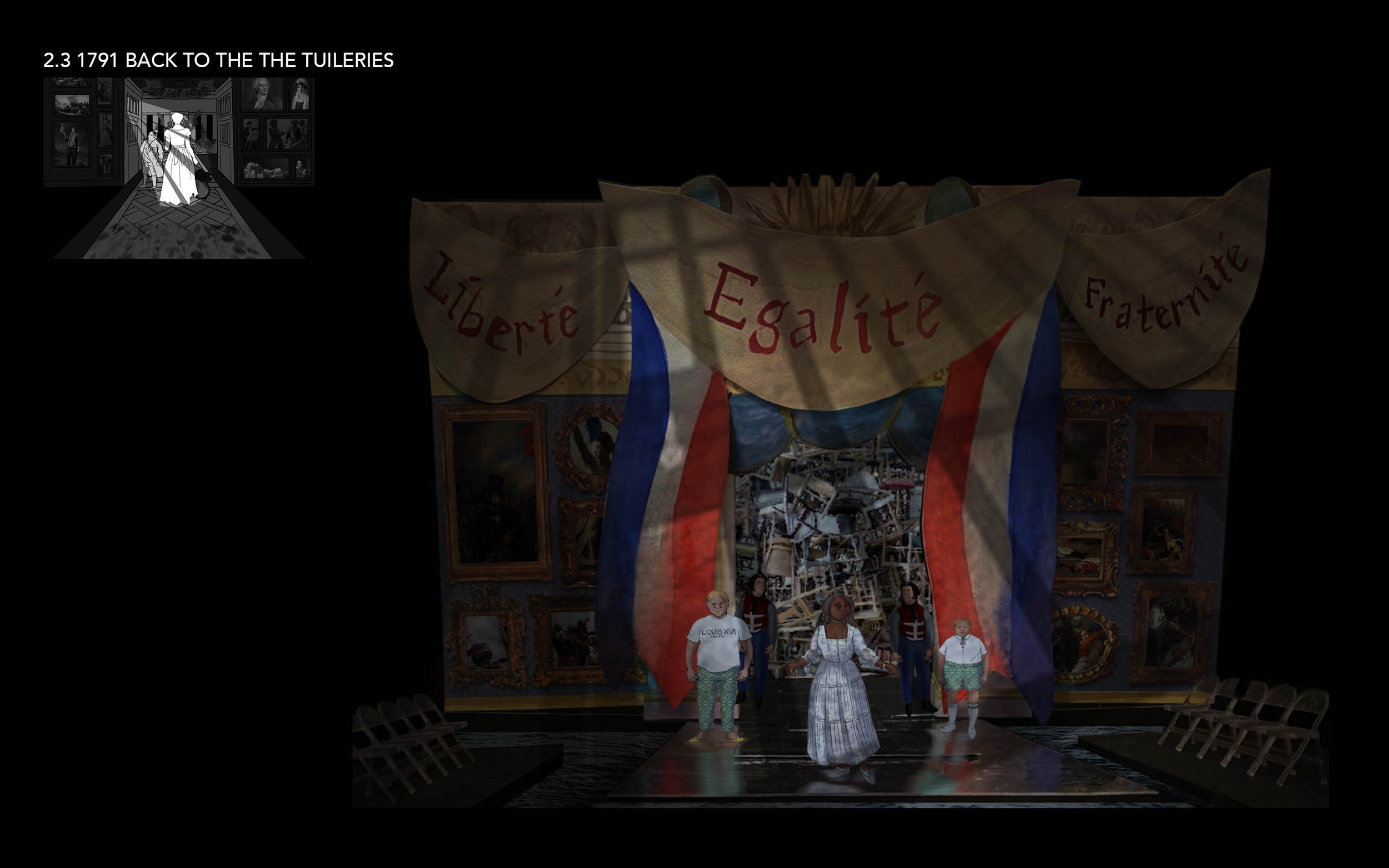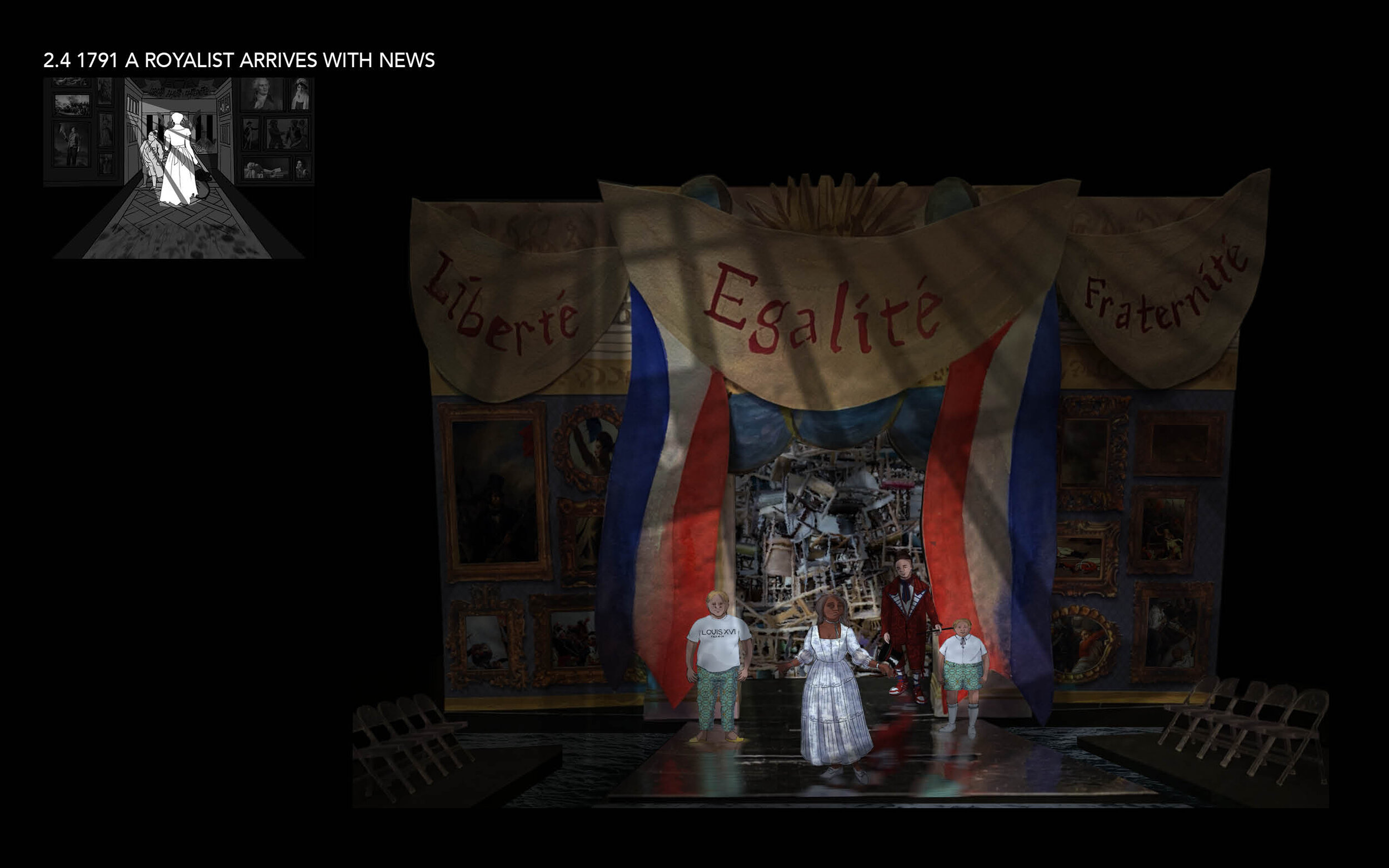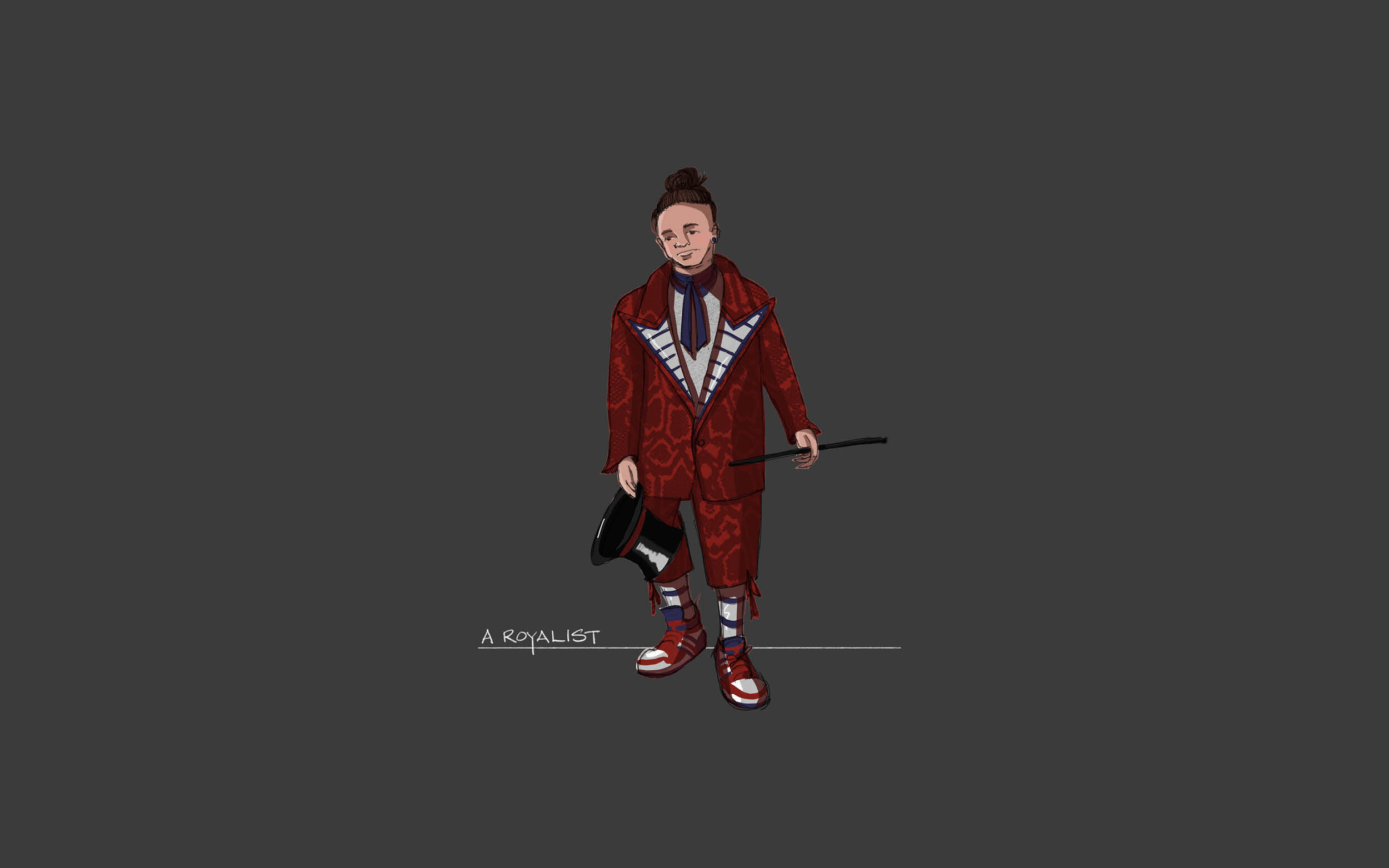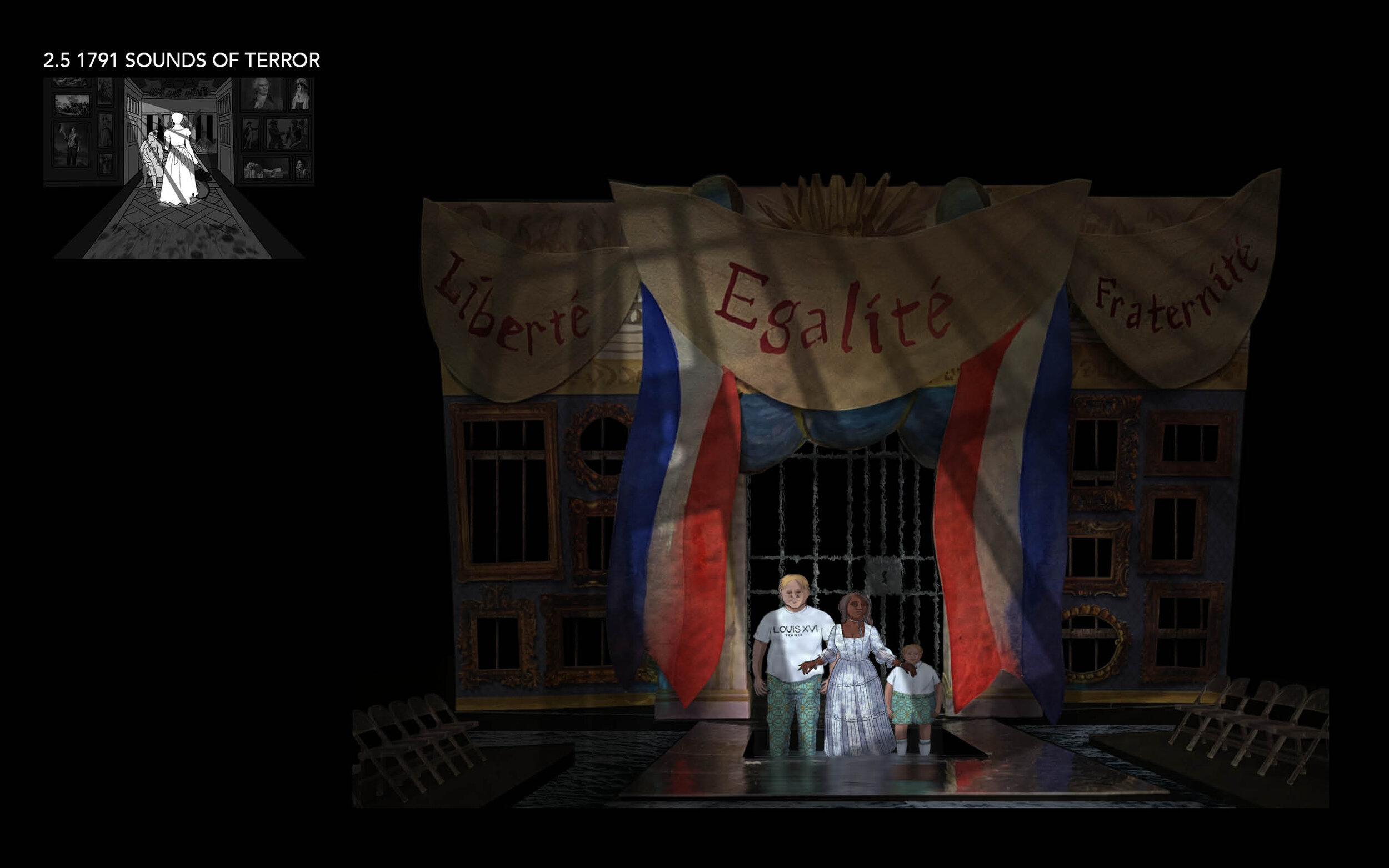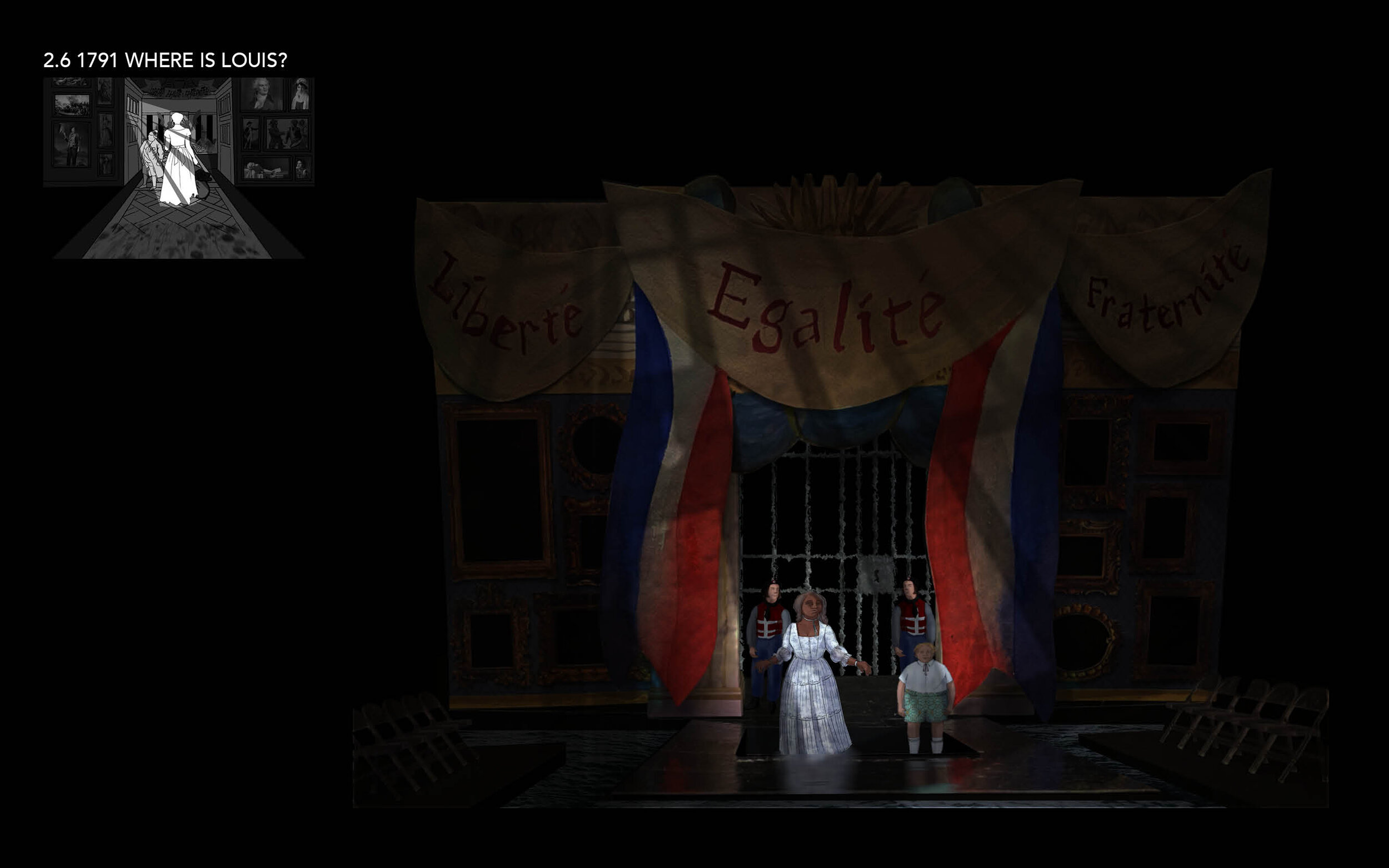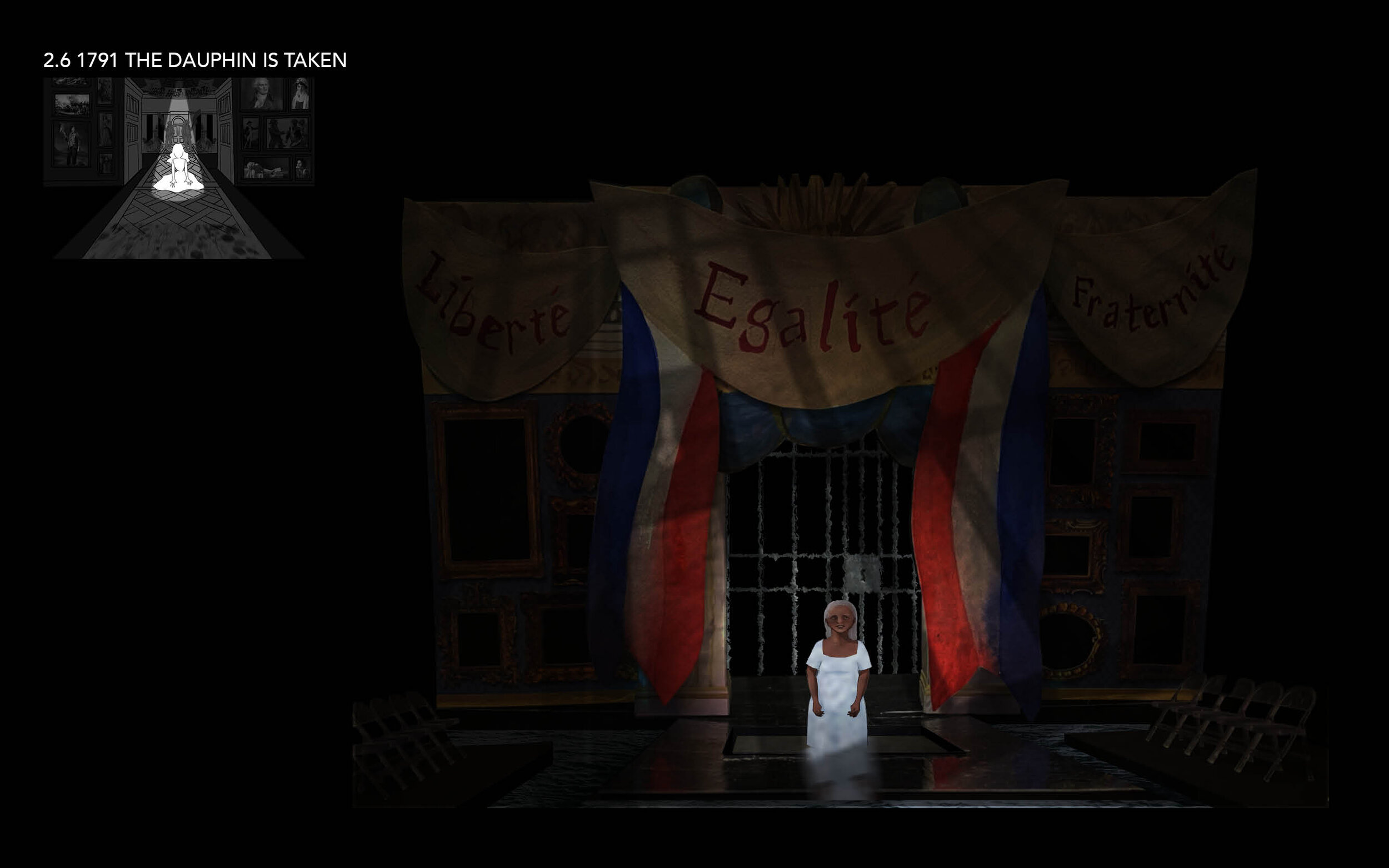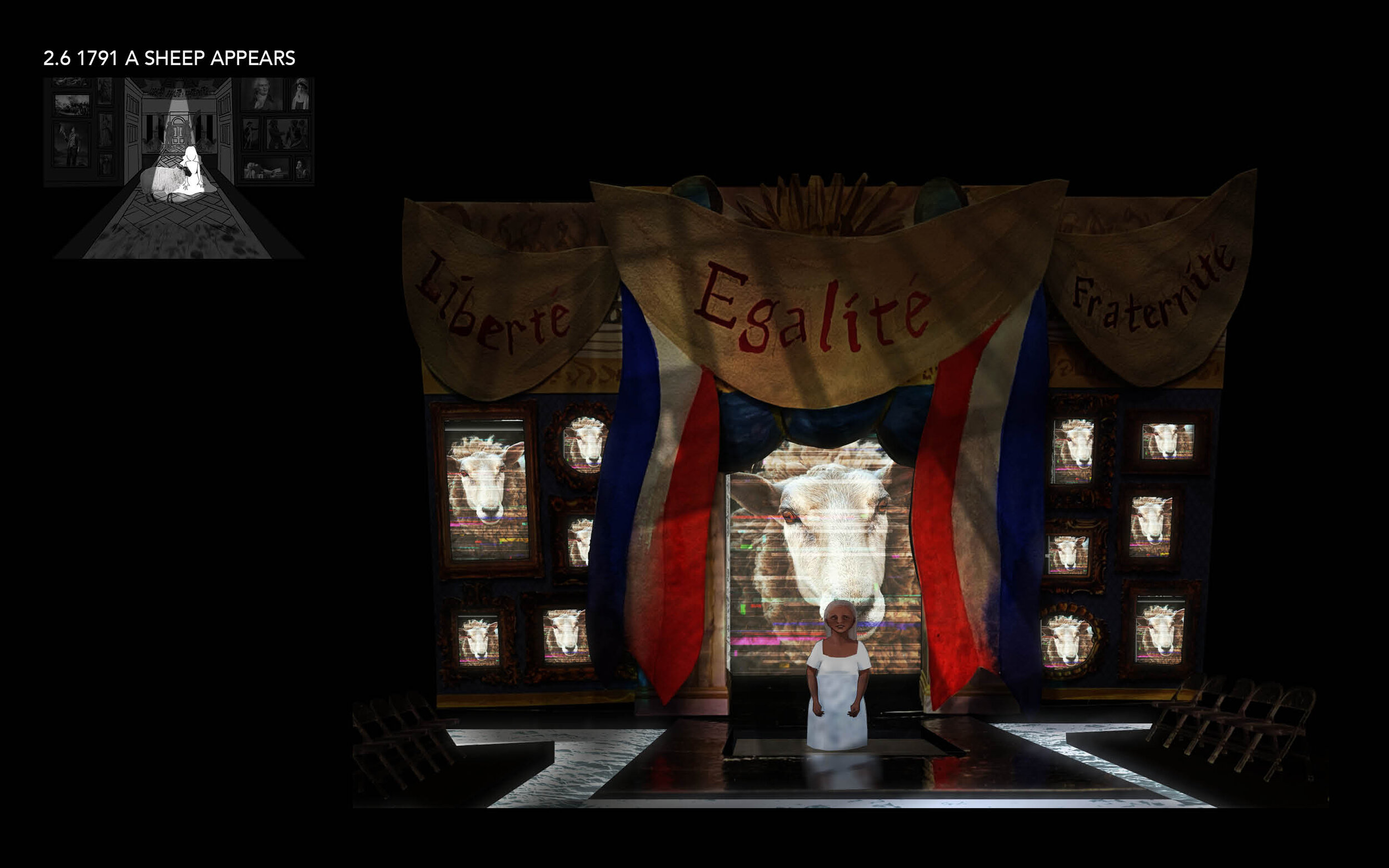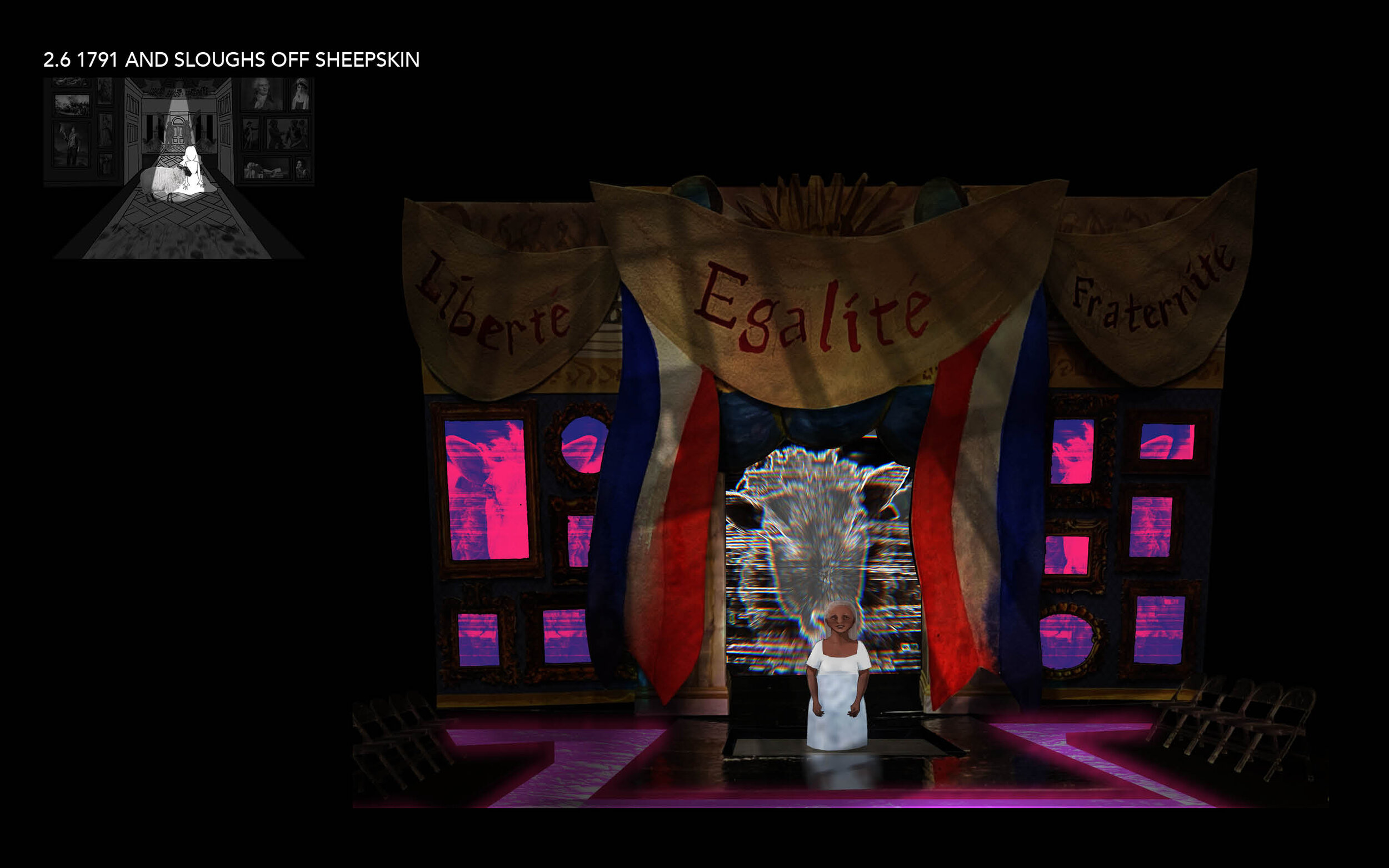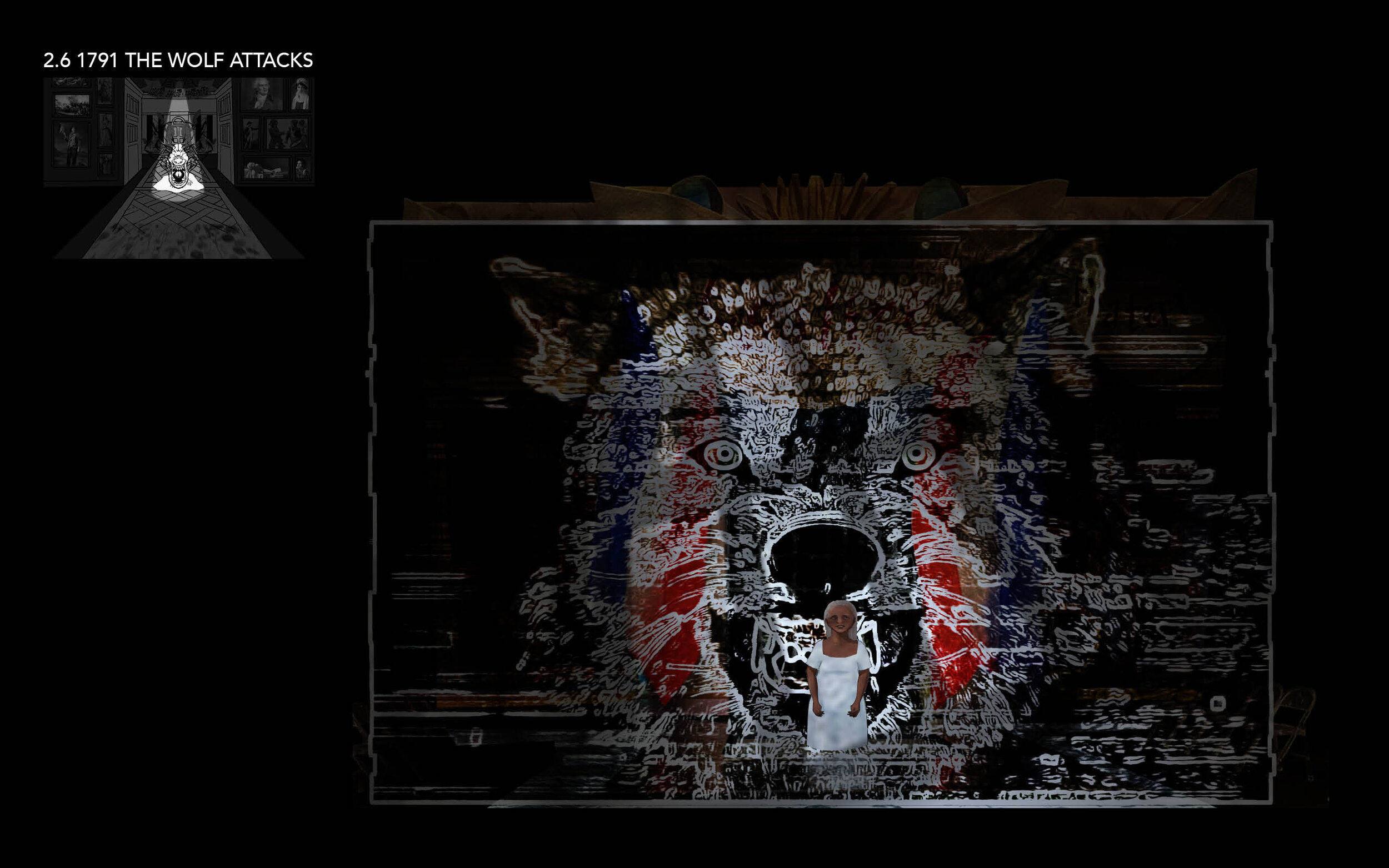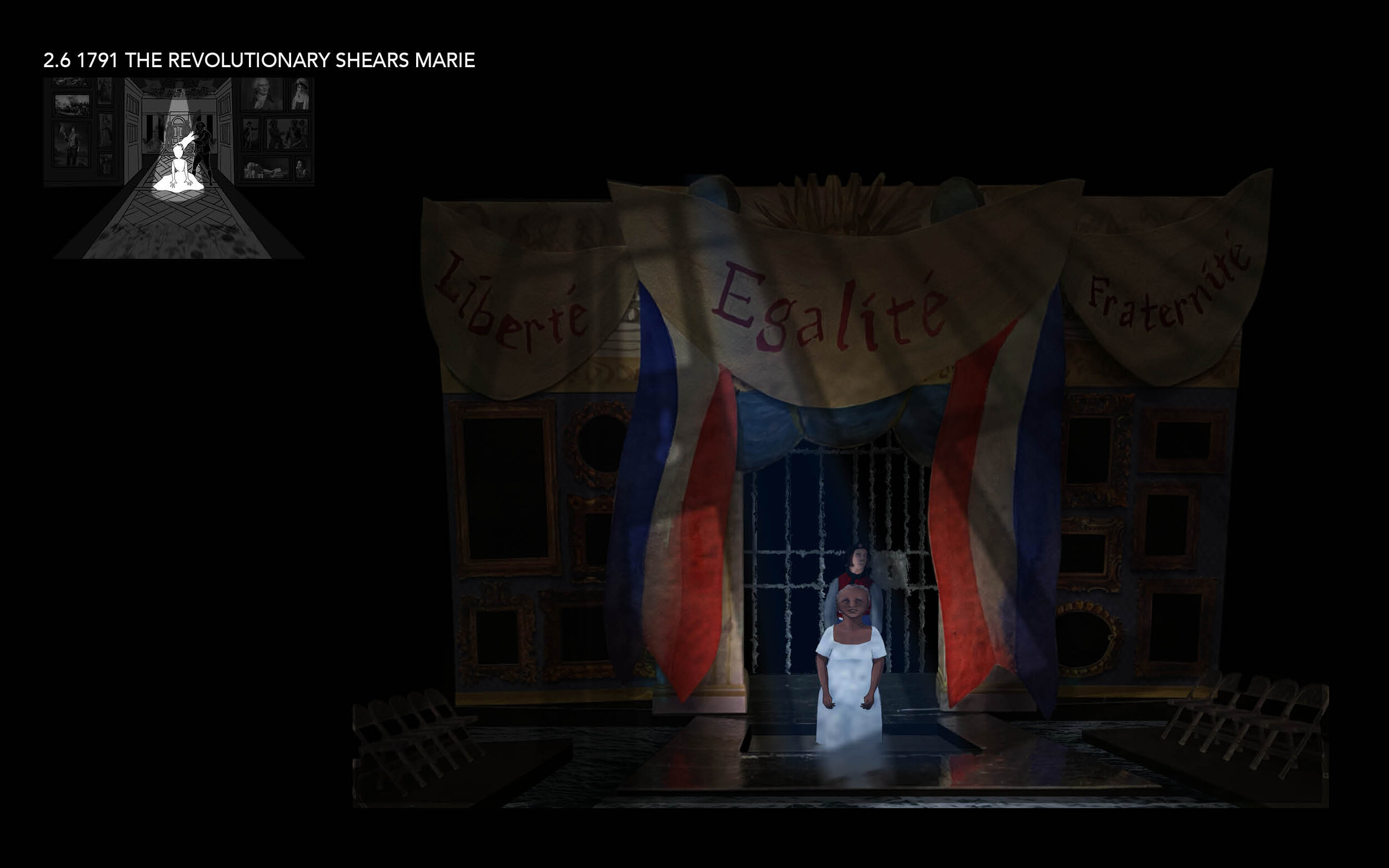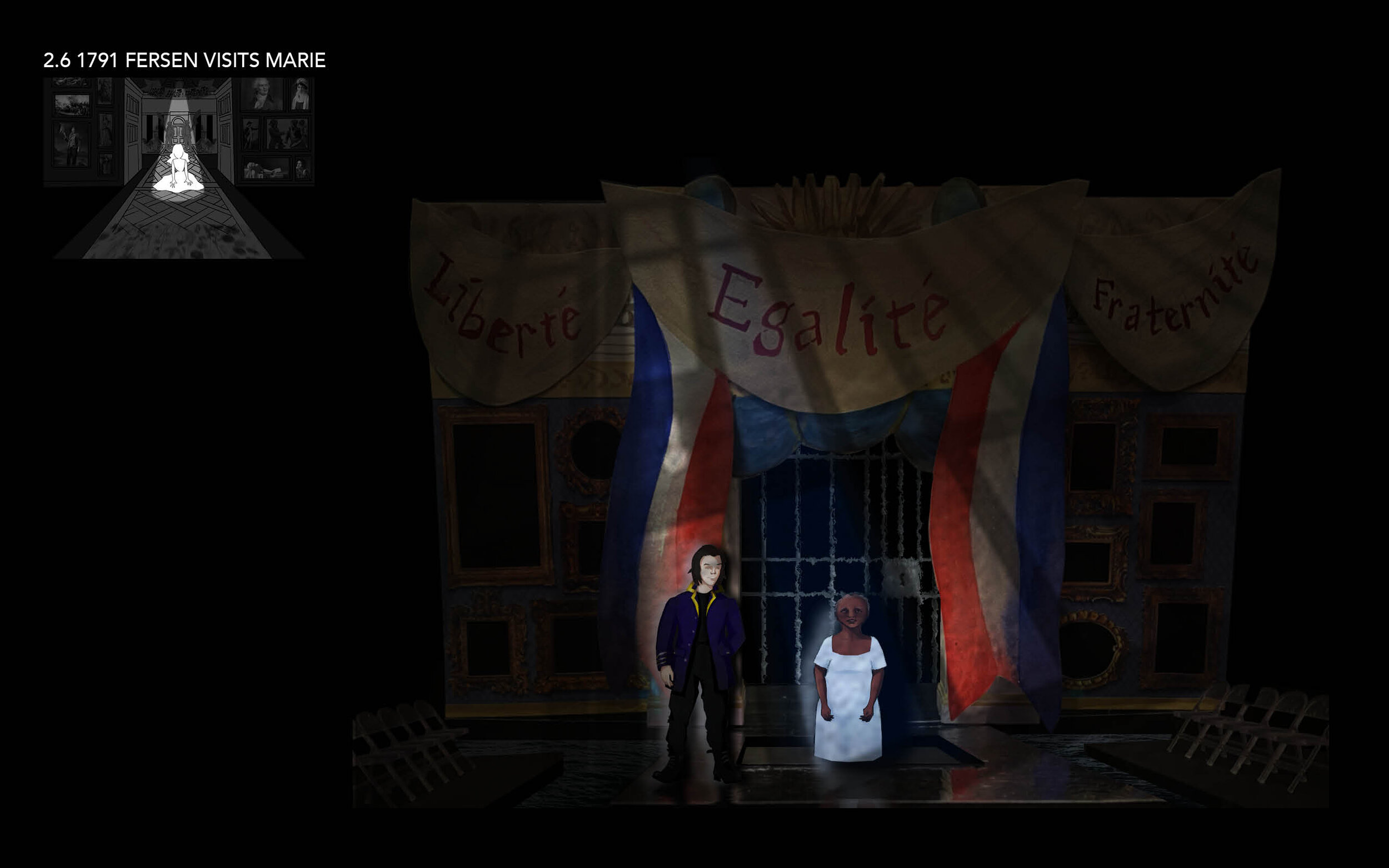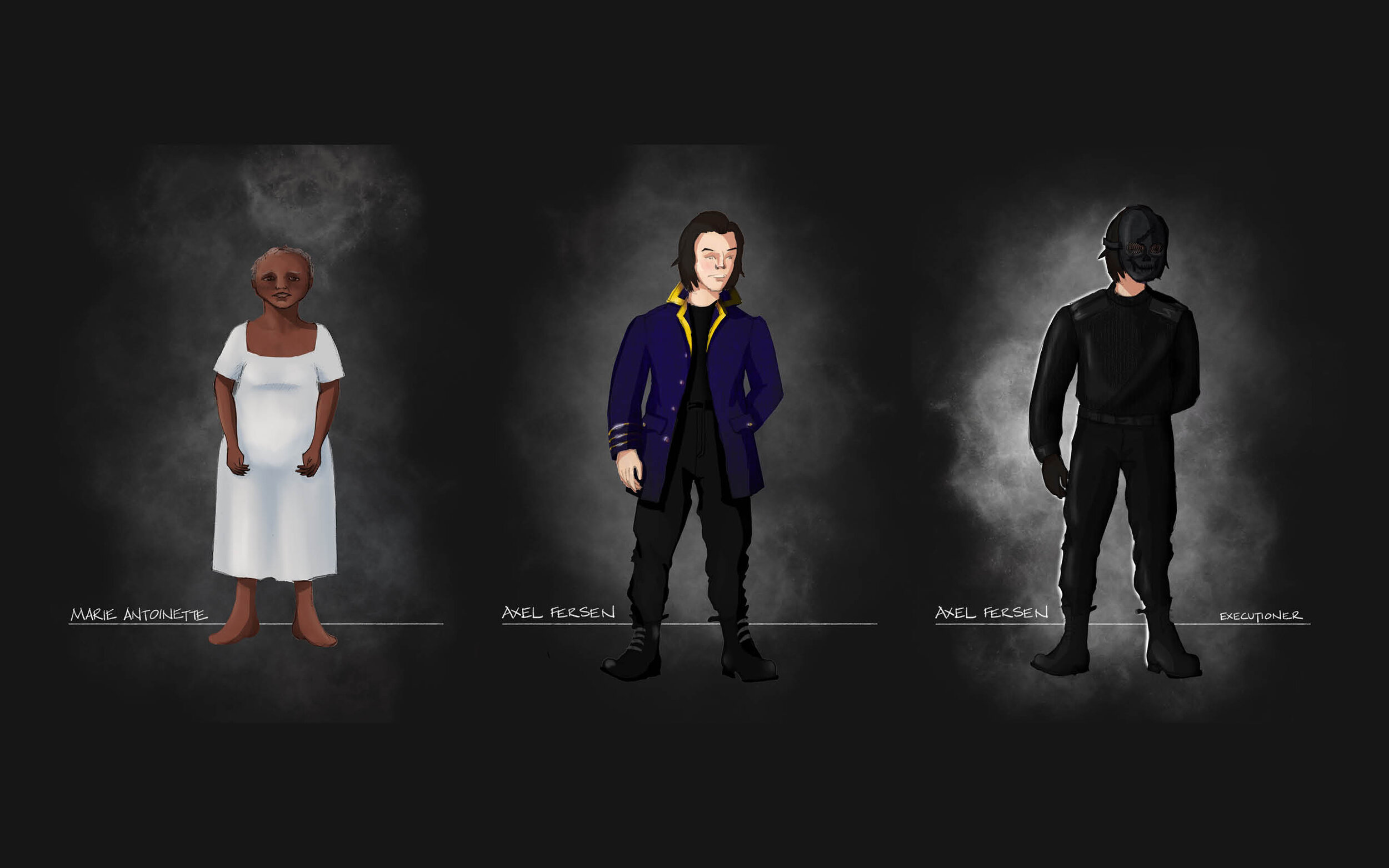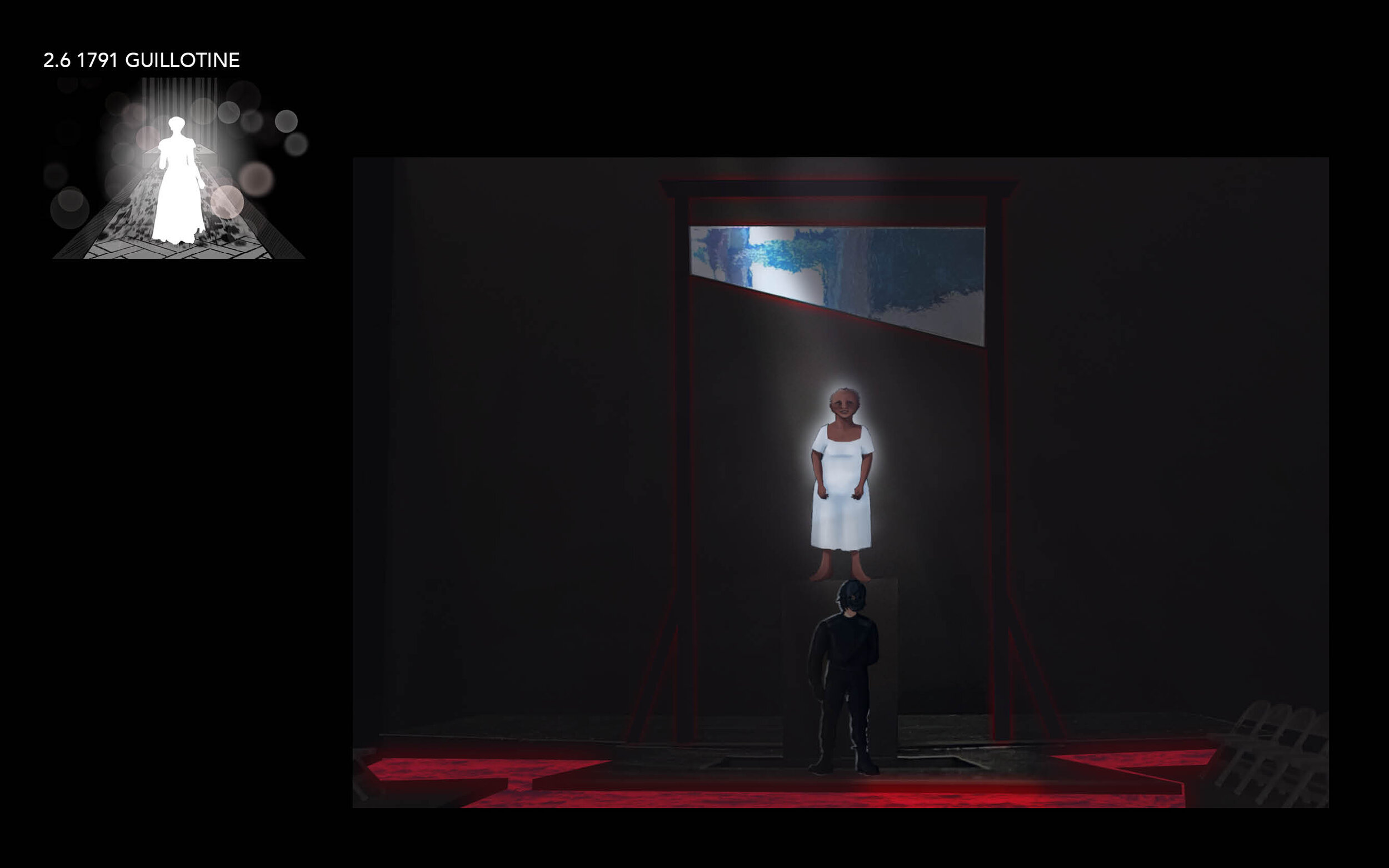Marie Antoinette by David Adjmi
Costume Design Thesis by Johanna Pan
Synopsis:
In David Adjmi’s contemporary take on the young queen of France, Marie is a confection created by a society that values extravagance and artifice. But France’s love affair with the royals sours as revolution brews, and for Marie, the political suddenly becomes very personal. From the light and breezy banter at the palace to the surging chants of “Liberté, Egalité, Fraternité!” in the streets, Marie Antoinette holds a mirror up to our contemporary society that might just be entertaining itself to death.
Point of View:
To me, the story of Marie is one we hear over and over again, and one I know all too well. Of a womxn struggling to navigate the politics of her lived identity, regulated by the world, by perception, micro-aggressions, caught in a tug of war between warring identities, nationalities, and commitments. Stuck between being the good Madonna (chaste and pure) or the bad Whore (promiscuous and seductive). I can only imagine what Marie went through in her remise -- her baptism in the river Rhine – and the long procession from Vienna to Versailles (or a 30-hour plane ride). Stripped of her Austrian-ness and being imposed with French-ness, she weaponizes those dichotomies to empower herself only for the world to rear its ugly head. She eventually finds a little solace in mastering (and subverting) the rules of the patriarchal monarchy. But ultimately her life remained a diversion for the populace.
The misogyny in defining and limiting who womxn are -- and can be -- exists in the never-ending, primarily male, gaze that follows us. Be it by French courtiers and revolutionaries (in Adjmi’s Marie Antoinette), or nowadays in Instagram, Facebook, Twitter, Reddit, TikTok, etc. This notion of a single, faceted perception of a woman’s identity was -- and still is -- misogynistic, classist and xenophobic/racist in its roots. We see this in womxn, particularly womxn of color navigating white spaces – like in the British rejection of Meghan Markle as a (now ex) royal in the British monarchy – or in the focus on Shakira’s and Jennifer Lopez’s crotch shots at the Super Bowl when they deliberately used the male gaze to bolster their own political messaging. It feels as if our problems – as womxn – have not changed from 1774 to 2020.
The play also challenges the American status quo and asks the questions about whether democracy can function in an America that is fundamentally unequal through Adjmi’s insistent sense of “fusion” of French history and contemporary American language and attitudes. With each news cycle, I feel like I live on the precipice of a new world order. David Adjmi calls America’s democracy a “doomed experiment” of individualism, and that idea certainly resonates in the wake of Trump’s America.. and COVID-19 America.. Are the Revolutionaries right? Is the Sheep? Or is Fersen? The audience should be left questioning their definition of democracy and equality and if any of it can be achieved without terror or bloodshed.
